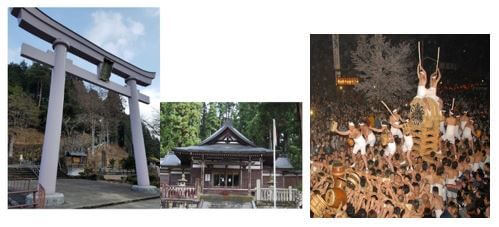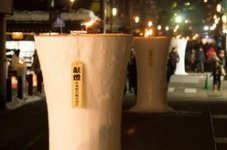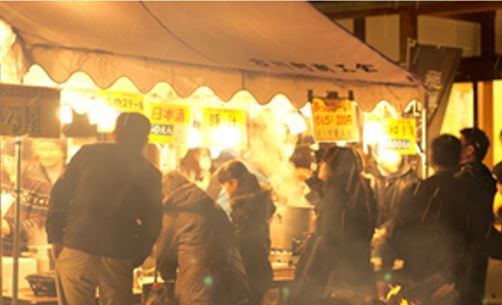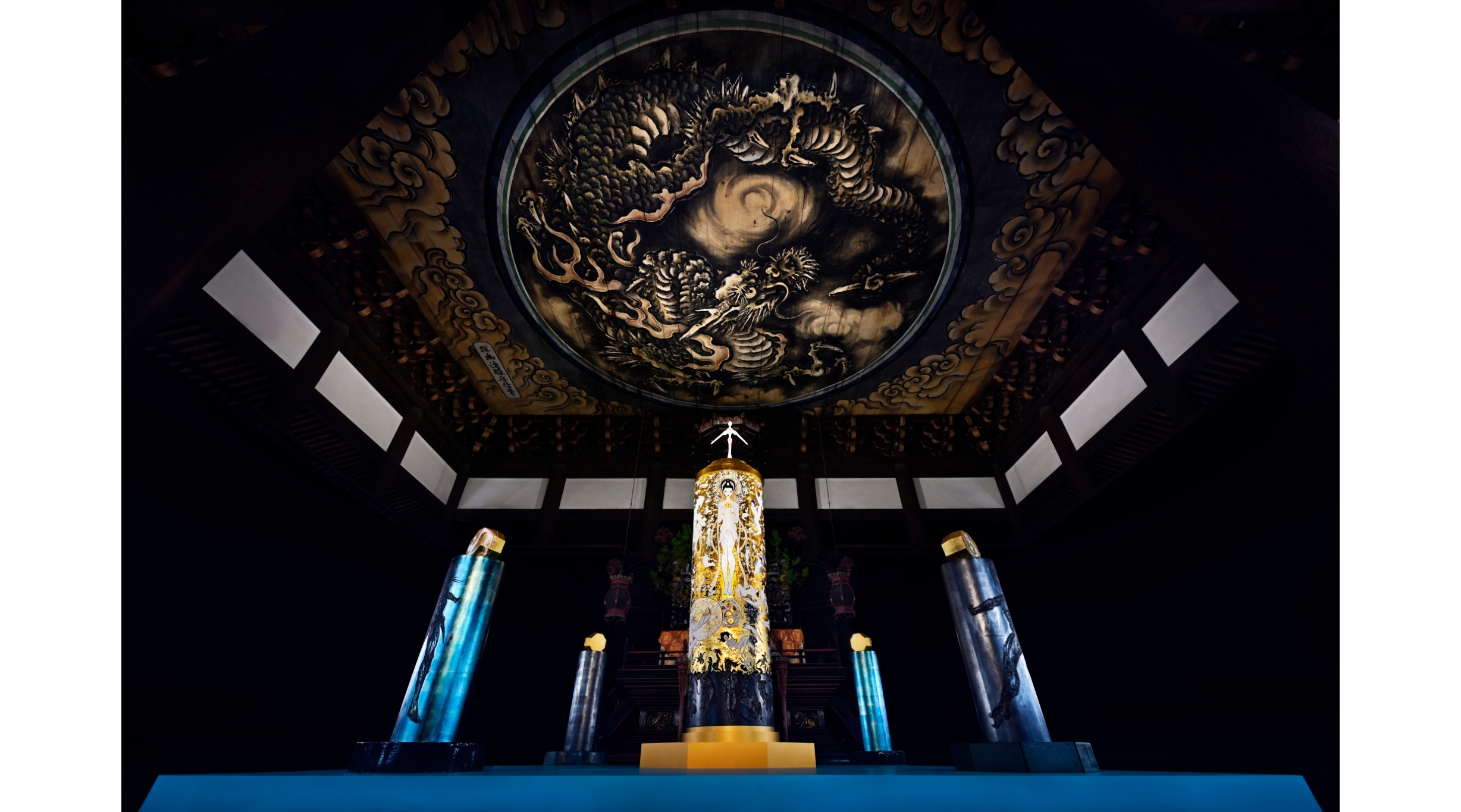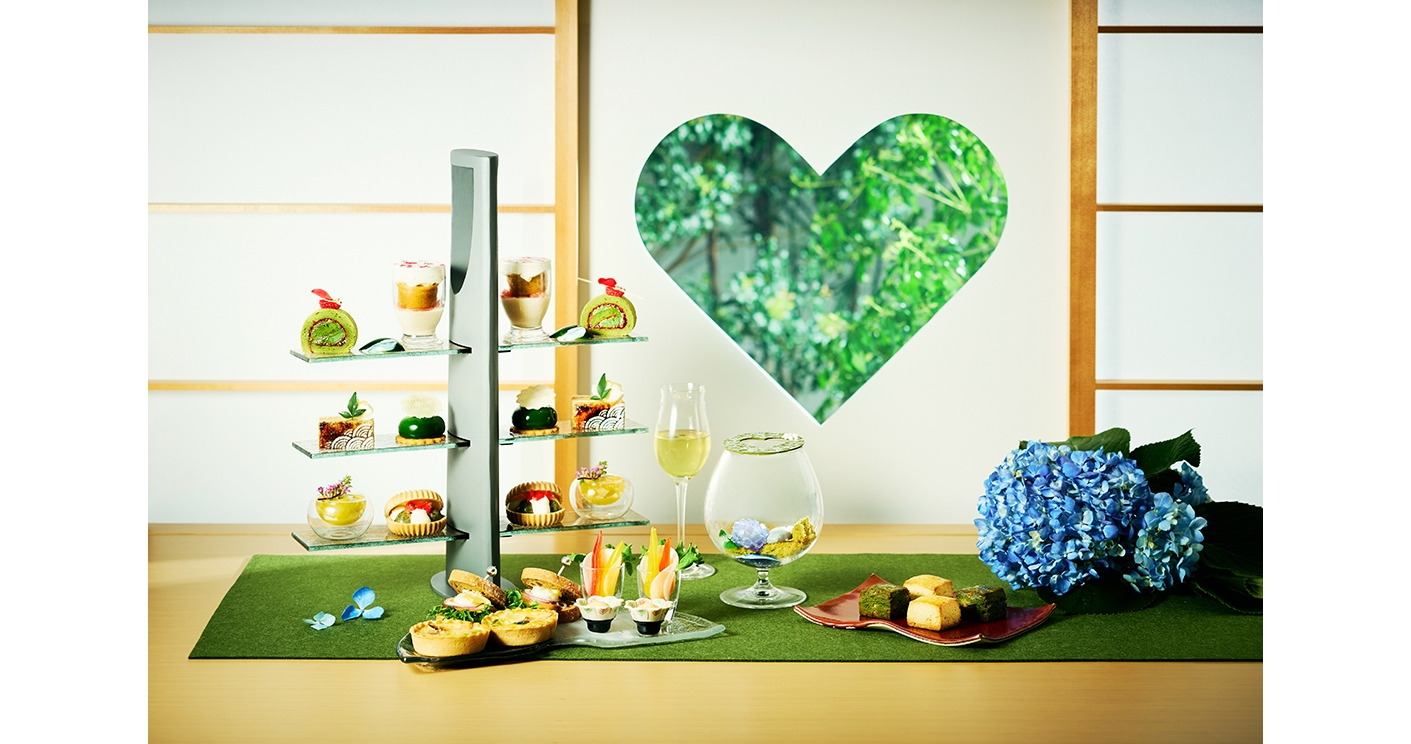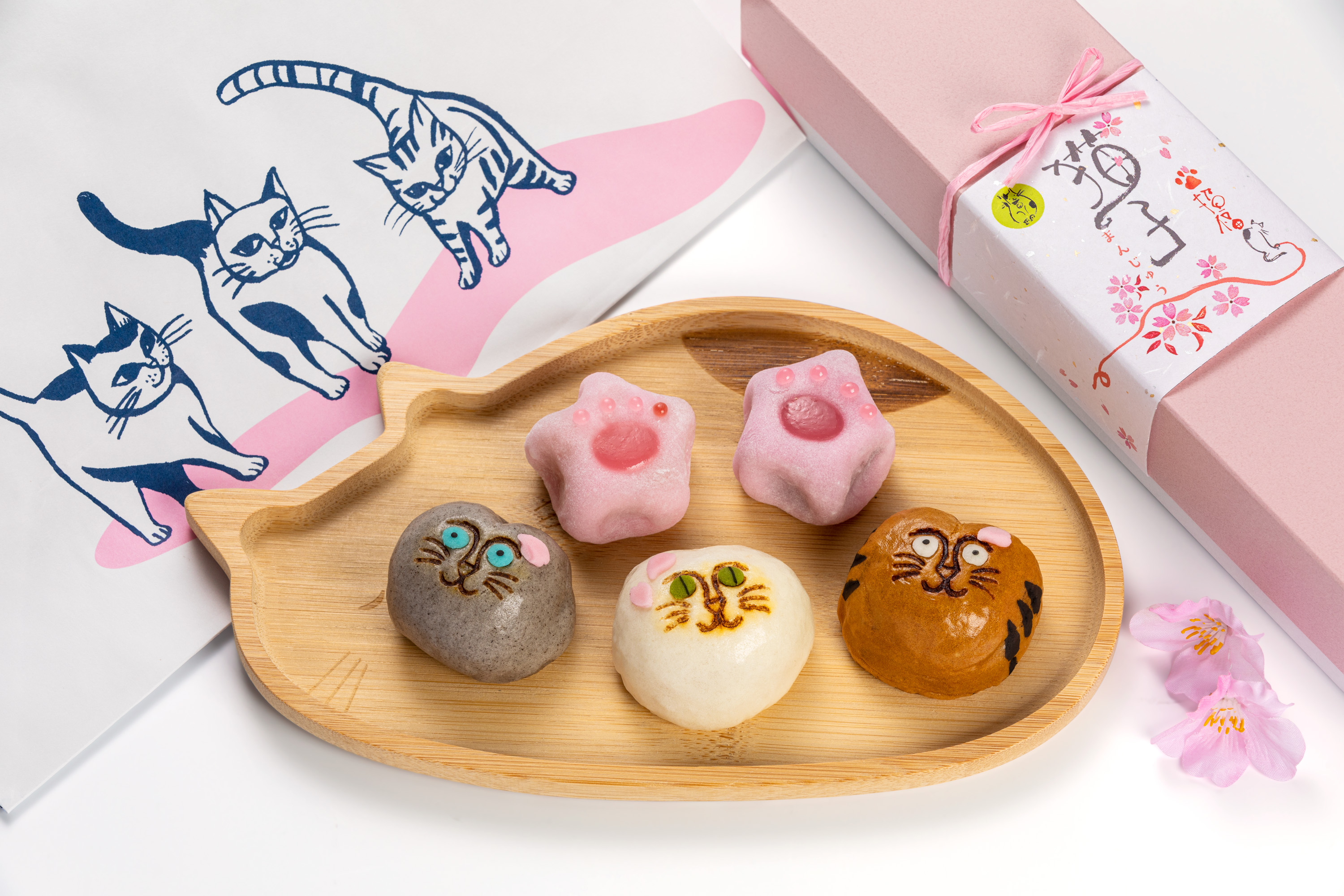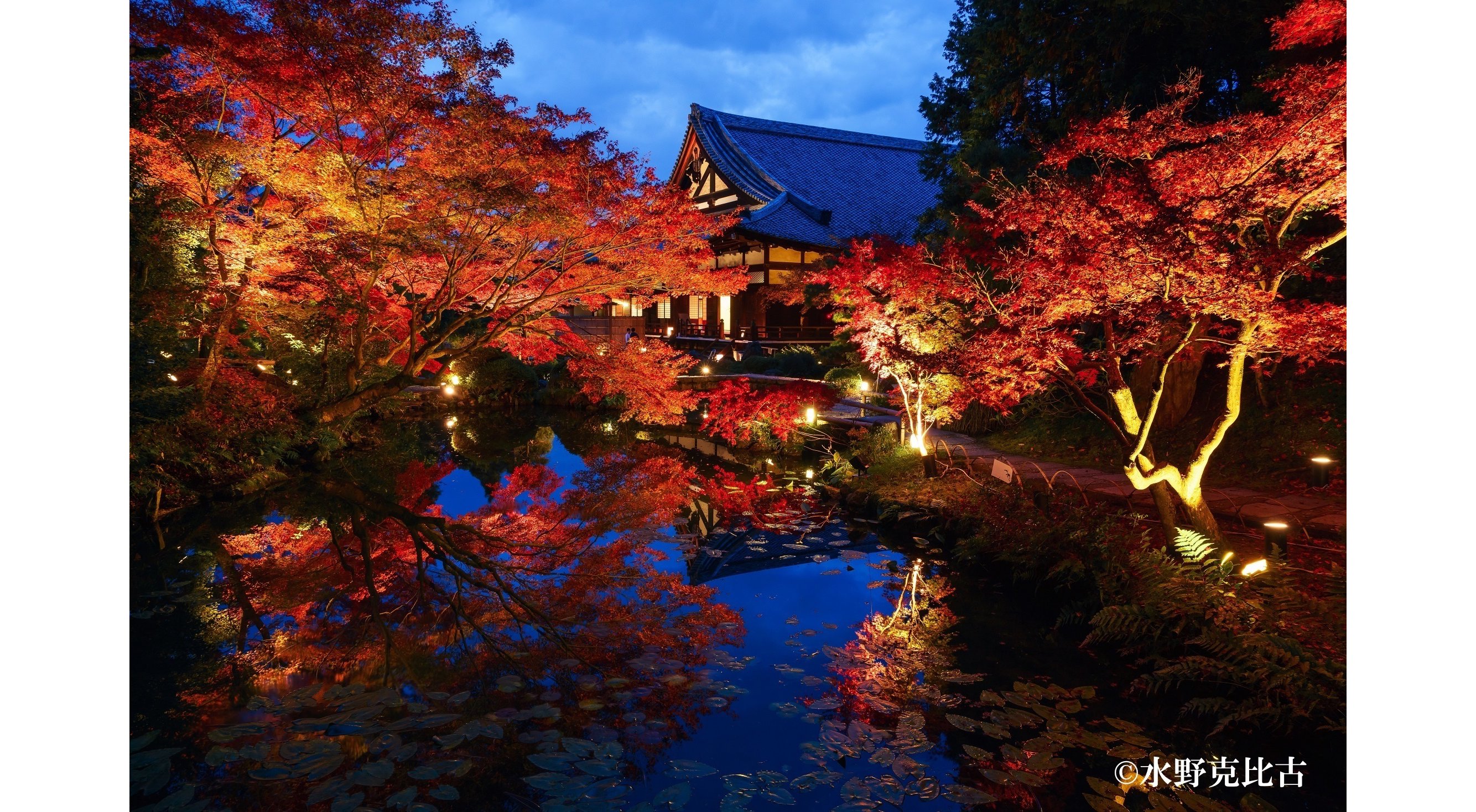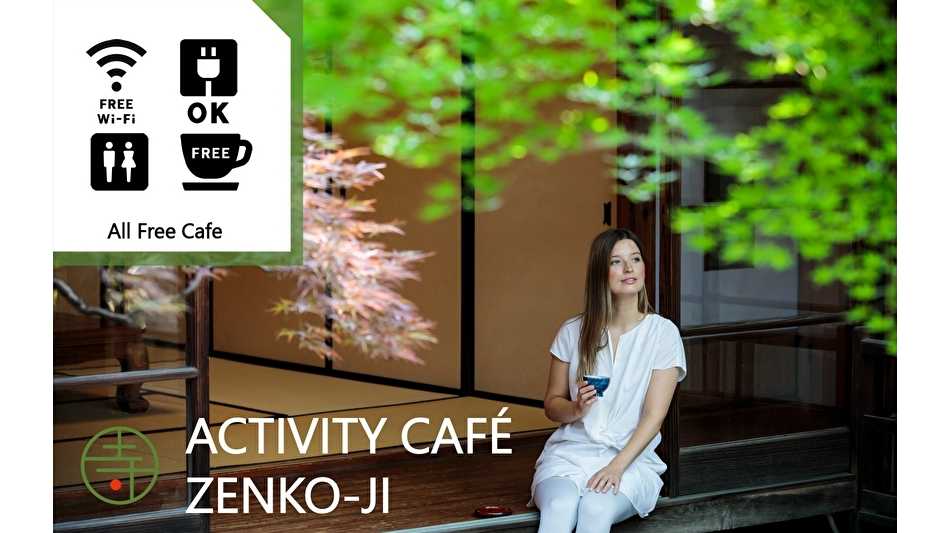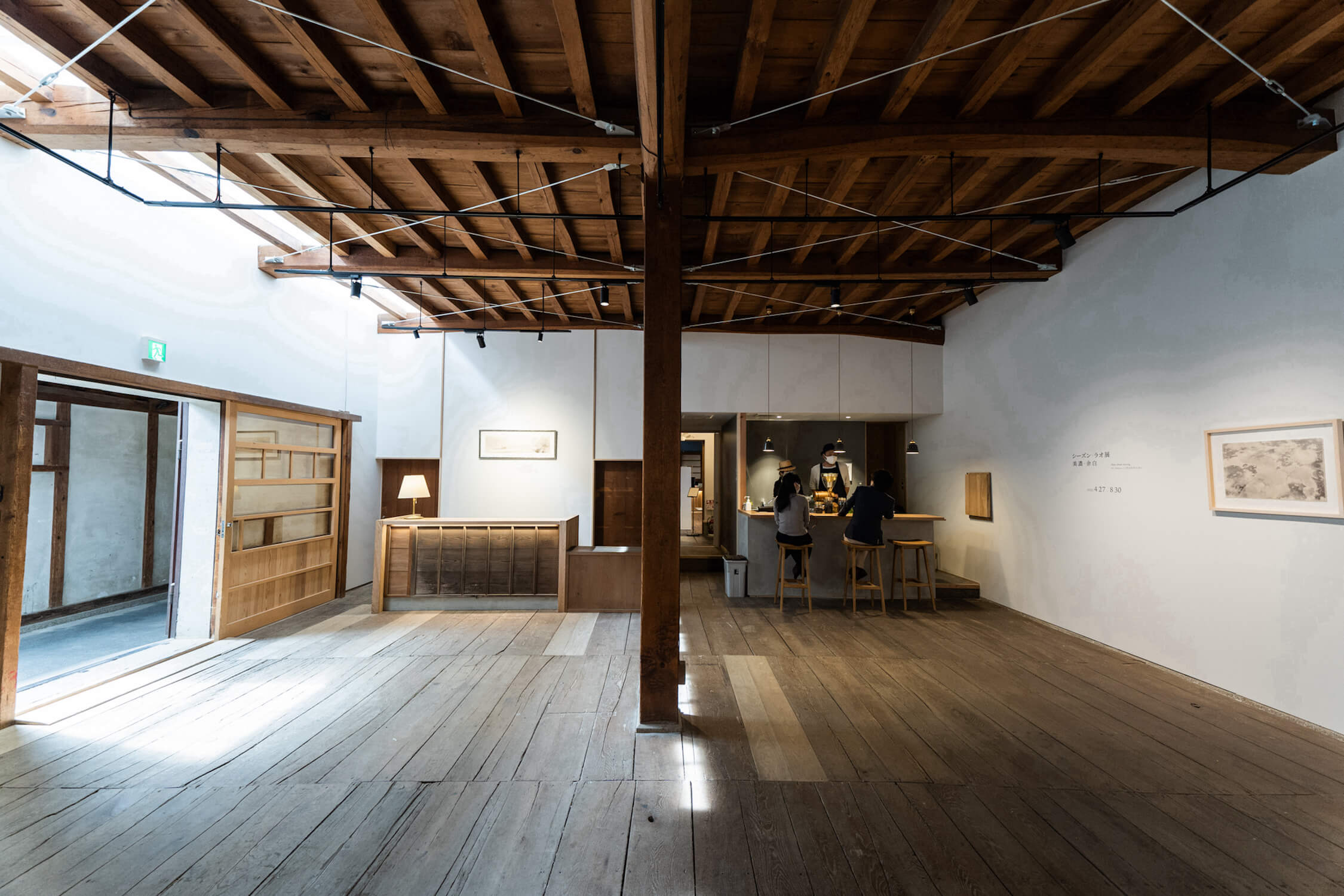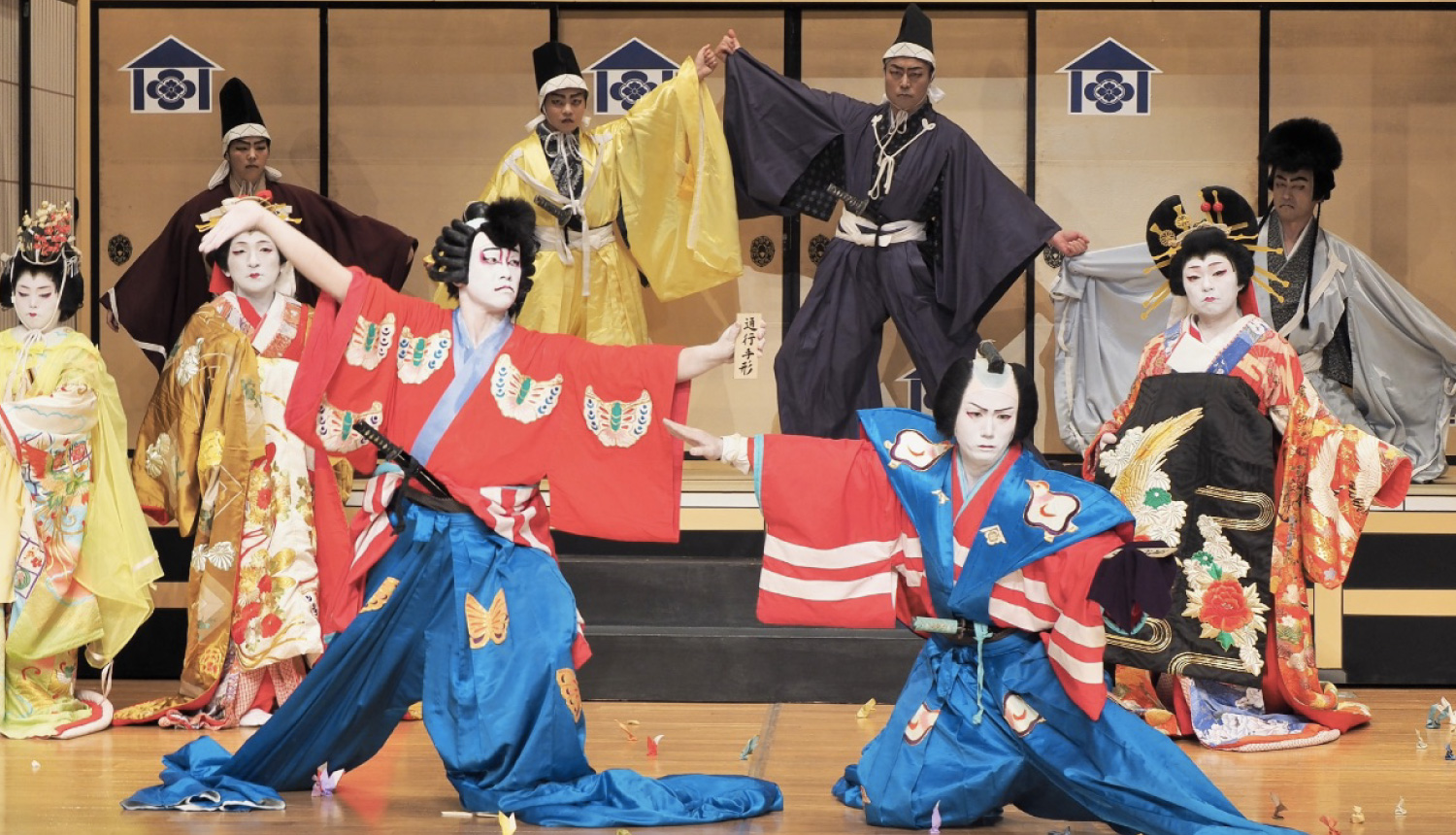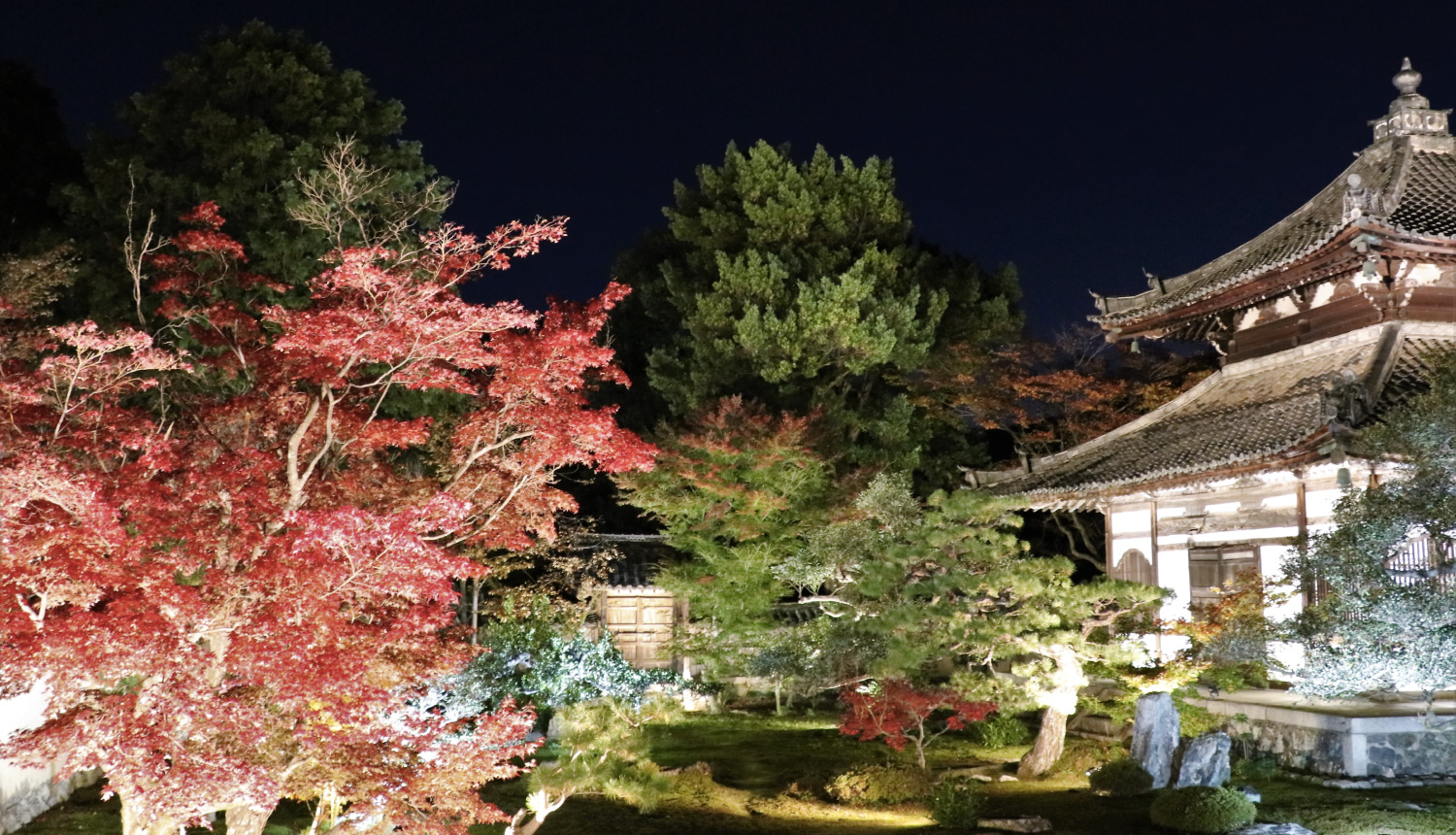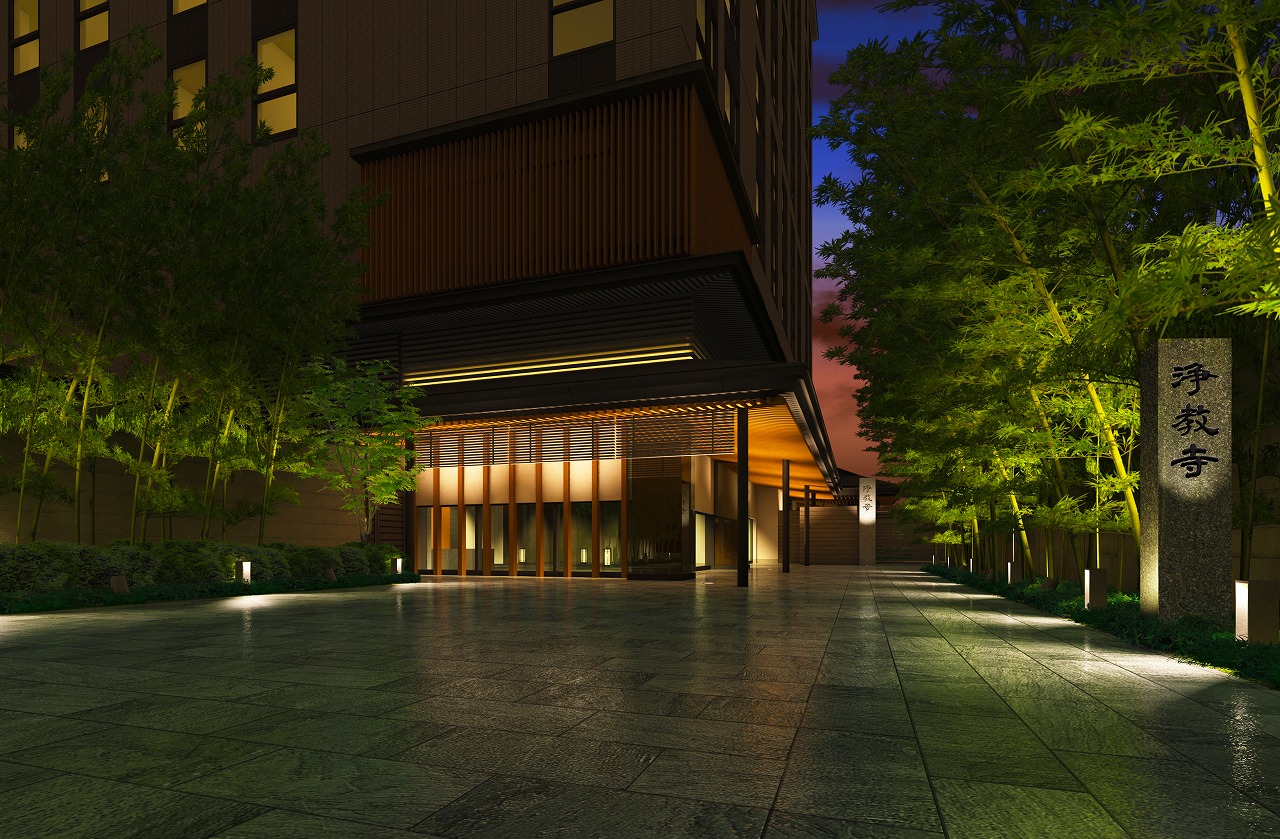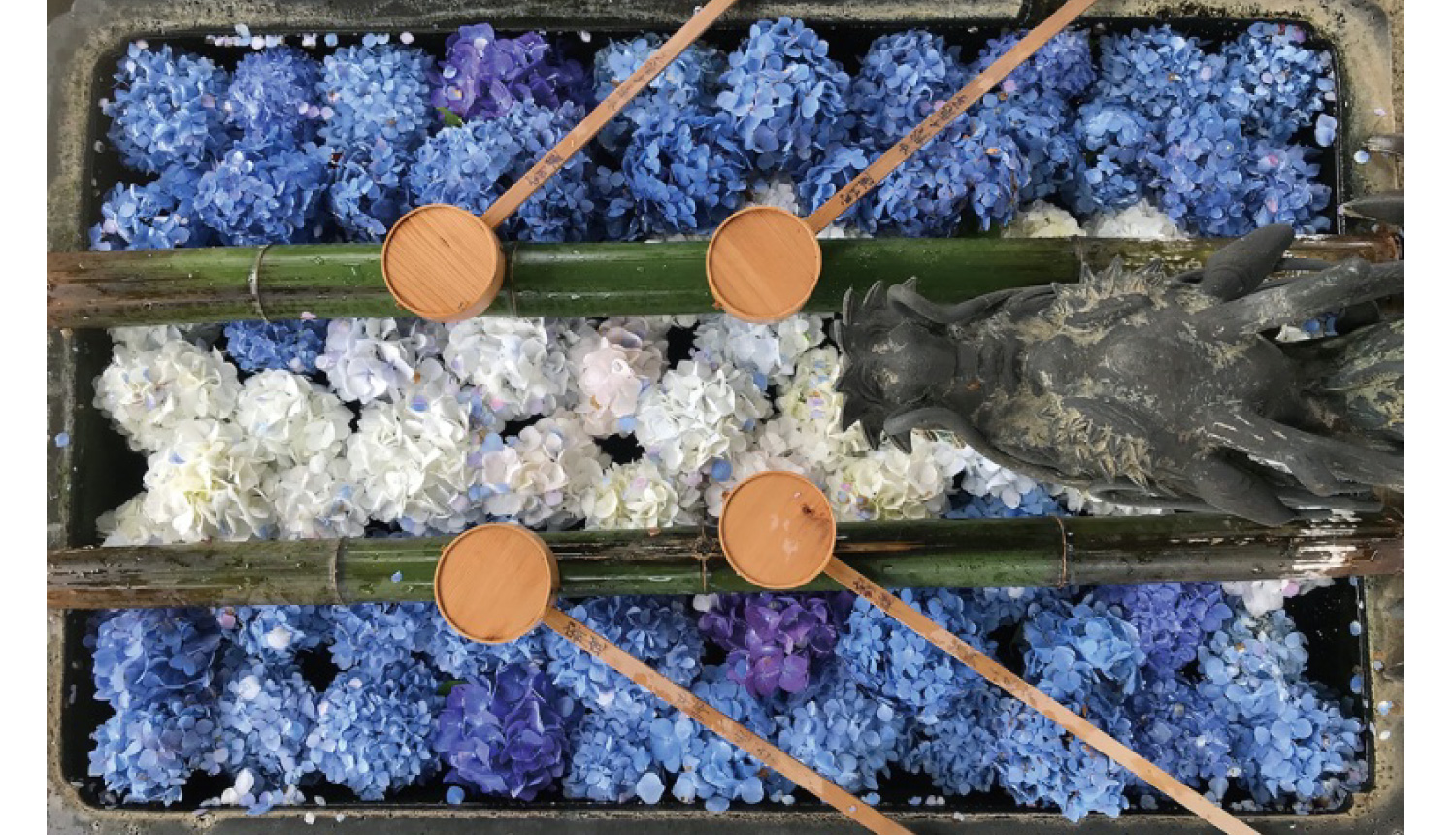Walk the Santera Mairi “Three Temple Pilgrimage” in Hida for romantic relationship success!
06.January.2018 | SPOT
The Santera Mairi is a traditional event that is held on January 15th every year in the city of Hida, Gifu Prefecture.
Santera Mairi, or “Three Temple Pilgrimage,” is a winter festival that has continued for over 200 years. For this one day, the streets of Furukawacho breathe an enchanting air as they are lit with tranquil candles before people begin their trip to the three temples: Enkoji, Shinshuji and Honkoji.
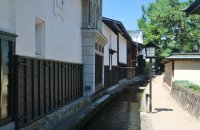
During the Meiji and Taisho periods, groups of of young girls passed through the treacherous snowy Nomugi Pass which runs between Nagano and Gifu Prefecture to reach the silk mills in Shinshuu. When it was time for them return home for the New Year, they would put on their best clothes and make a pilgrimage to the Setogawa Canal to meet with boys. Since then, it has become known as a pilgrimage for successful love.
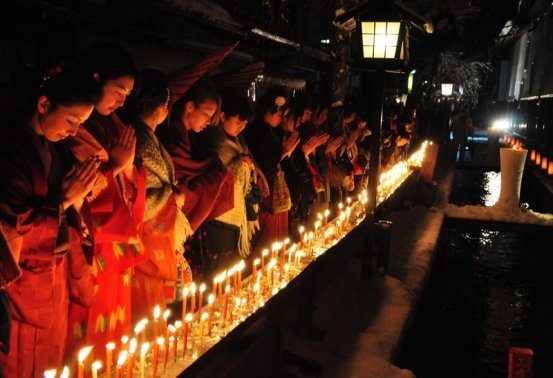
On January 15th, the day of the Santera Mairi, it’s a quiet period and the area blanketed with deep snow. Lots of people bustle for the pilgrimage, the town is filled with women in traditional dress, and the streets are lined with enchanting candles.
Two-meter high “Heavy Snow Candles” are placed around Furukawa, and along the Setogawa Canal women light a thousand candles to pray for successful love. Candles weighing 13kg are offered at each temple and lit.
The gentle light of the candles wraps the town with a serene atmosphere, all made possible by the town’s candle shop “Mishima Warousoku.”
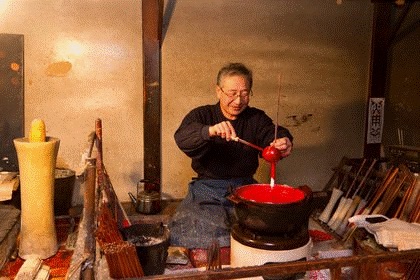
Mishima Warousoku is one of only 10 shops in Japan that specializes in making ‘warousoku’ candles by hand. They create rare candles for the Santera Mairi tied to tradition.
Another true pleasure of the event is the food and the food stalls selling special products which are a huge boom every year. The town is packed with stalls selling Hida style food such as char grilled with salt, Hida beef croquettes, local goheimochi which are skewered rice cakes served with soy sauce and miso, chicken karaage, and more. This year’s event will also see a rice sampling booth that won the International Contest on Rice Taste Evaluation. You’ll have the opportunity to experience the taste of local rice from Hida that is praised all over Japan.
There will also be a women’s rental service for Sunday bests. The event will also hold “Egoma Week” for the very first time from January 14th-21st where meals will be served with Hida egoma, or Japanese perilla, a type of plant. Hida’s local special egoma is an ingredient gaining attention right now for its brain-boosting and anti-aging effects. You can try original egoma dishes from participating restaurants.
Challenge yourself to the Santera Mairi in Gifu and increase the success of your romantic relationship.
Santera Mairi
Location: Furukawa-cho, Hida-shi, Gifu Prefecture
Date: Monday January 15, 2018
Contact: 0577-74-1192
Website: https://www.hida-kankou.jp/santera/ Stalls (festival area): 12:00-21:00
1000 Candles Lighting (along Setogawa Canal) – 16:00-21:00
Snow Candle Lighting (town high streets) – from 16:00
Mishima Warousoku
Address: 3-12 Ichinomachi, Fukukawa-cho, Hida-shi
Contact: 0577-73-4109
RELATED ENTRIES
-
Final Fantasy Artist Yoshitaka Amano Holds Art Exhibition at Myoshin-ji in Kyoto
Yoshitaka Amano, known by international fans as the artist behind the legendary Final Fantasy video game series, is celebrating his 70th birthday with a unique art project from November 23 until December 8 at Myoshin-ji in Kyoto.
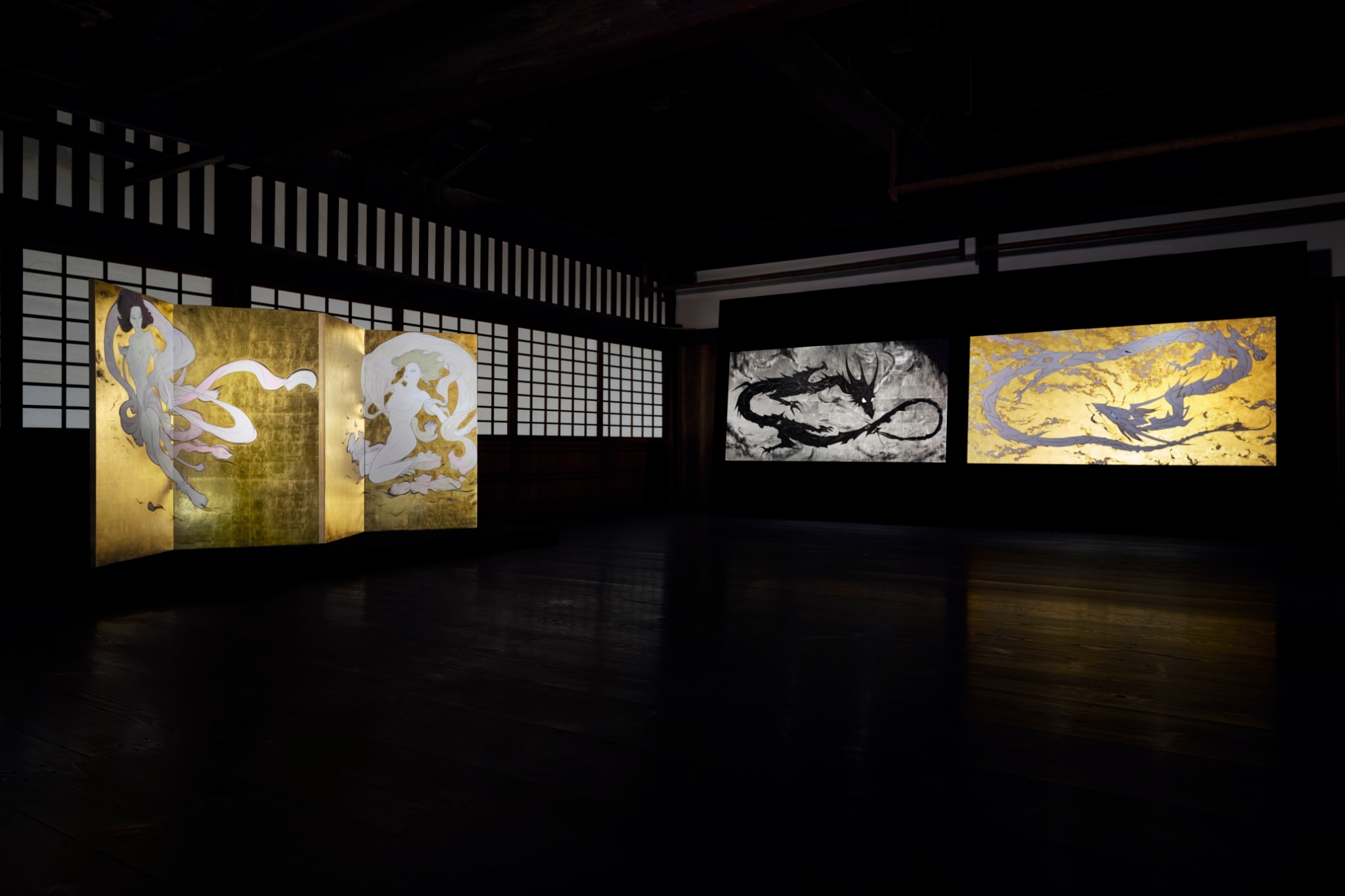
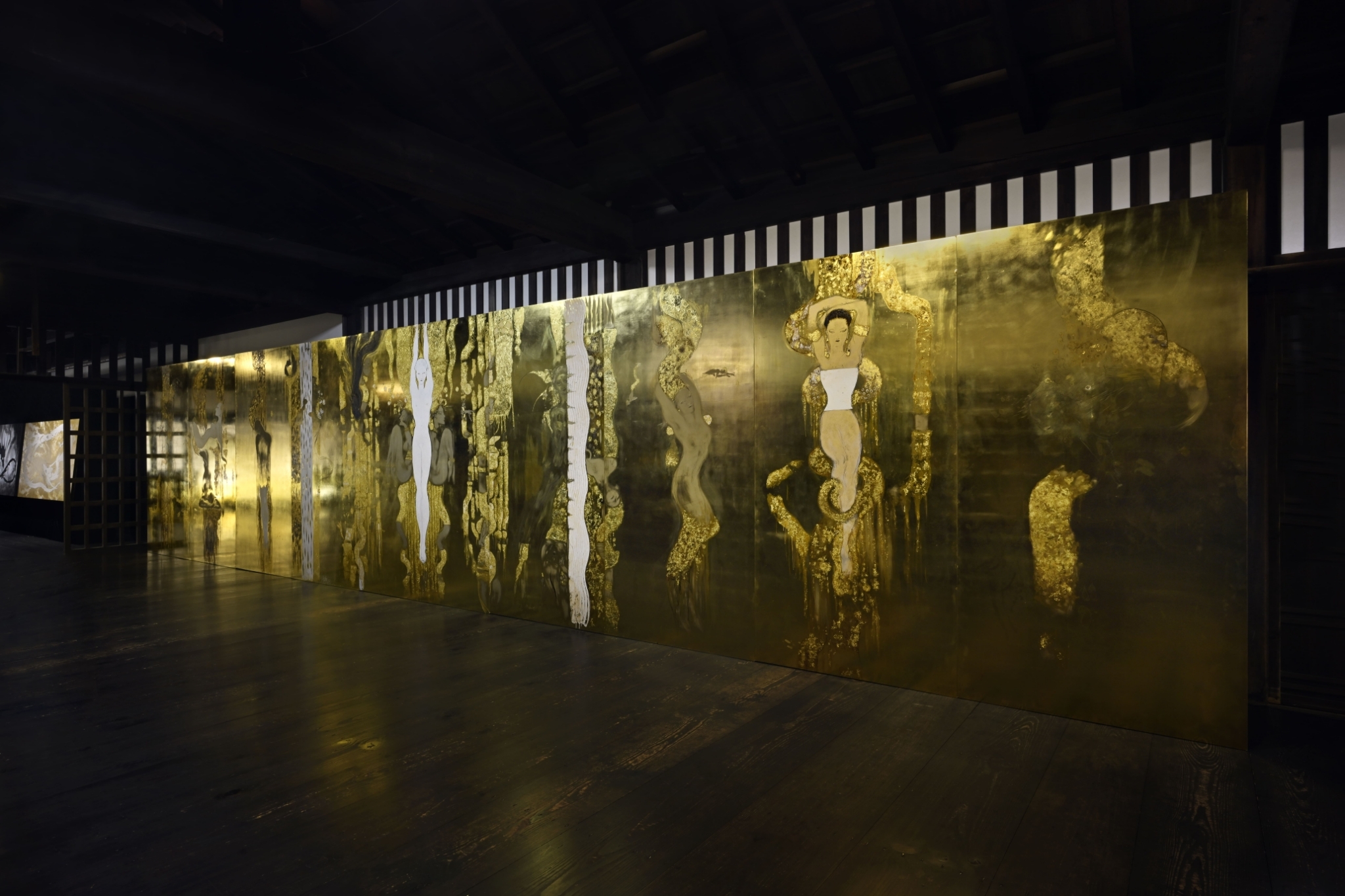
On the first day of the event, the venue, decorated with autumn leaves, was crowded with visitors including foreign tourists, who marveled at the fantastic space filled harmoniously with gold and blue. The exhibition will be held at Myoshin-ji, the head temple of the associated branch of Rinzai Zen Buddhism. This collection of works was designed to question visitors’ sensibilities and provide a new kind of art exhibition for fans to enjoy.
After the exhibition, the main art piece by Yoshitaka himself will be converted to 3DCG, and a Virtual Golden World will be developed in collaboration with the Yoshitaka Amano VR Museum. By integrating traditional and modern art methods, guests will be able to engage more deeply in the art by enjoying digital works, the metaverse, and NFTs.
Don’t miss this curious exhibition!
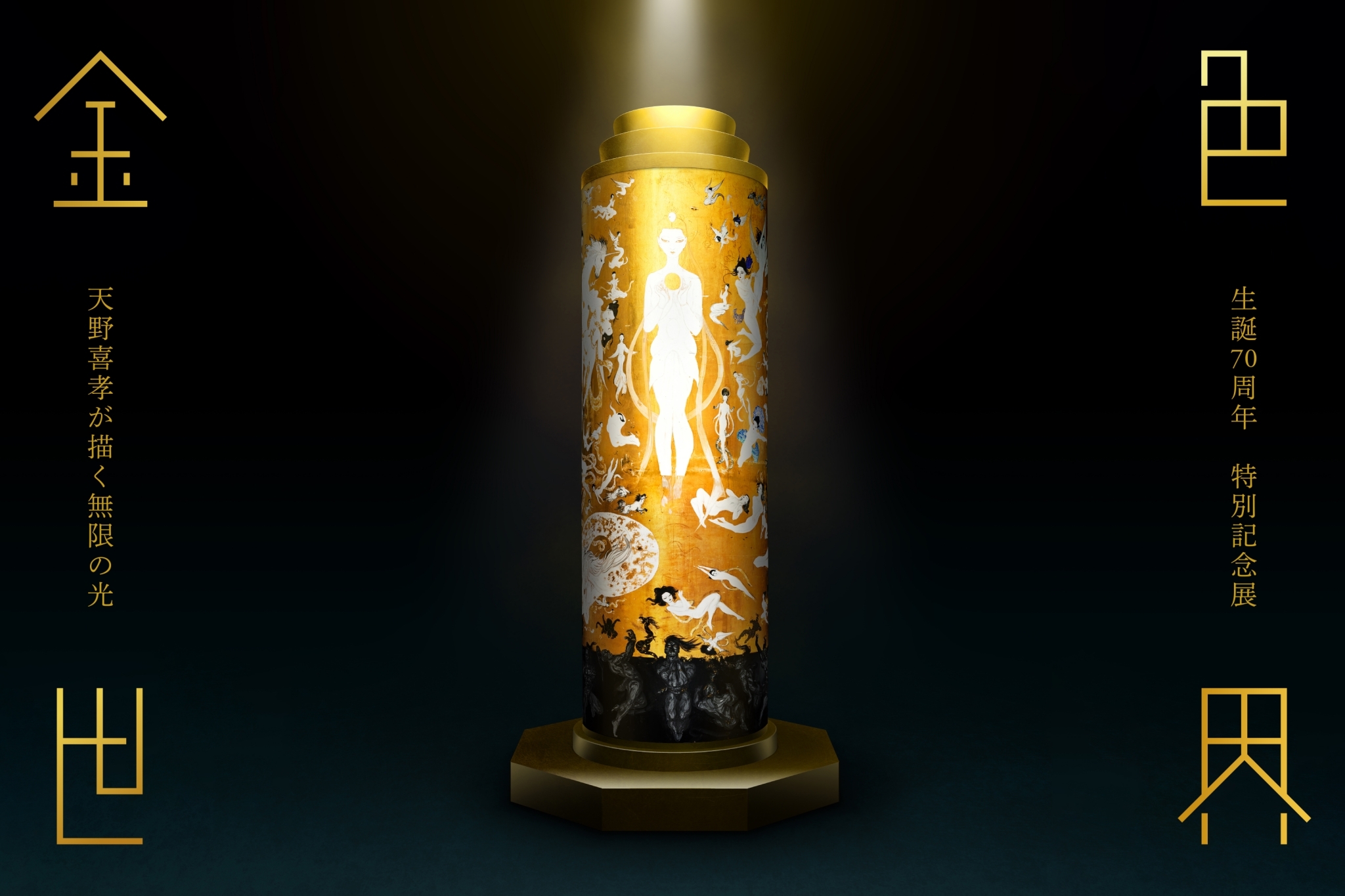
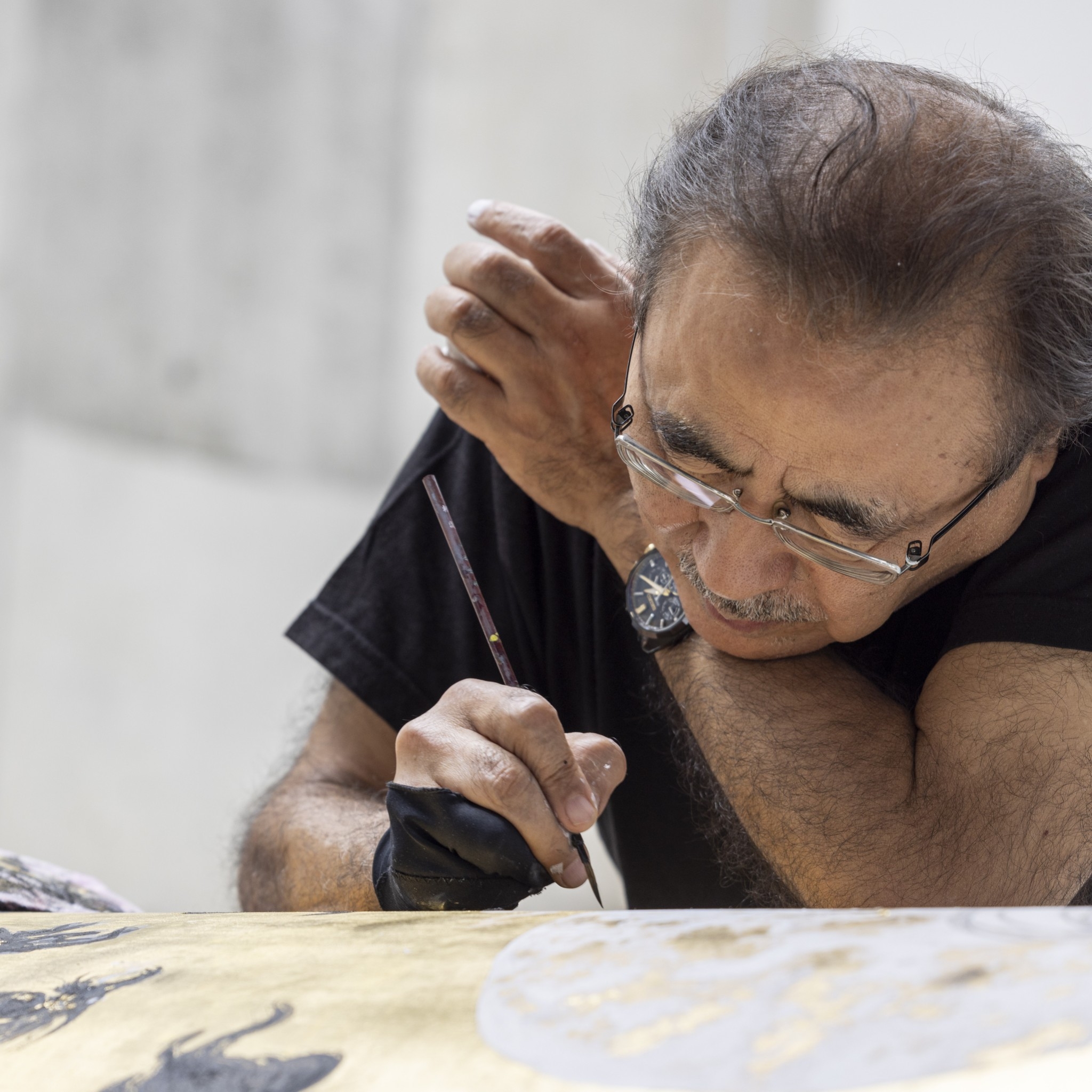
Information
Golden World: Infinite Light by Yoshitaka Amano
~GOLDEN VIEW OF THE WORLD~
Running: November 23 – December 8, 2022
Venue: Myoshin-ji
Hours: 9:00-12:00 / 13:00-16:00
Tickets on sale until 15:30 each day.
Official Site: https://www.myoshinji.or.jp/
-
Final Fantasy Artist Yoshitaka Amano Holds Art Exhibition at Myoshin-ji in Kyoto
10.November.2022 | FASHION
Yoshitaka Amano, known by international fans as the artist behind the legendary Final Fantasy video game series, is celebrating his 70th birthday with a unique art project in Kyoto.
The exhibition will be held at Myoshin-ji, the head temple of the associated branch of Rinzai Zen Buddhism. Stepping into the temple, guests will be met with colorful autumn leaves and a sea of gold and blue art pieces.
“I want people to enter this world of light and experience being part of it,” Amano said. “Rather than art being something flat on a wall, I want to present something new and unique.” This collection of works was designed to question visitors’ sensibilities and provide a new kind of art exhibition for fans to enjoy.The main art piece, newly painted by Amano himself, will be on display in the Dharma Hall, which was decorated by one of Kano Tan’yu’s masterpieces. Tan’yu was an Edo-period painter.
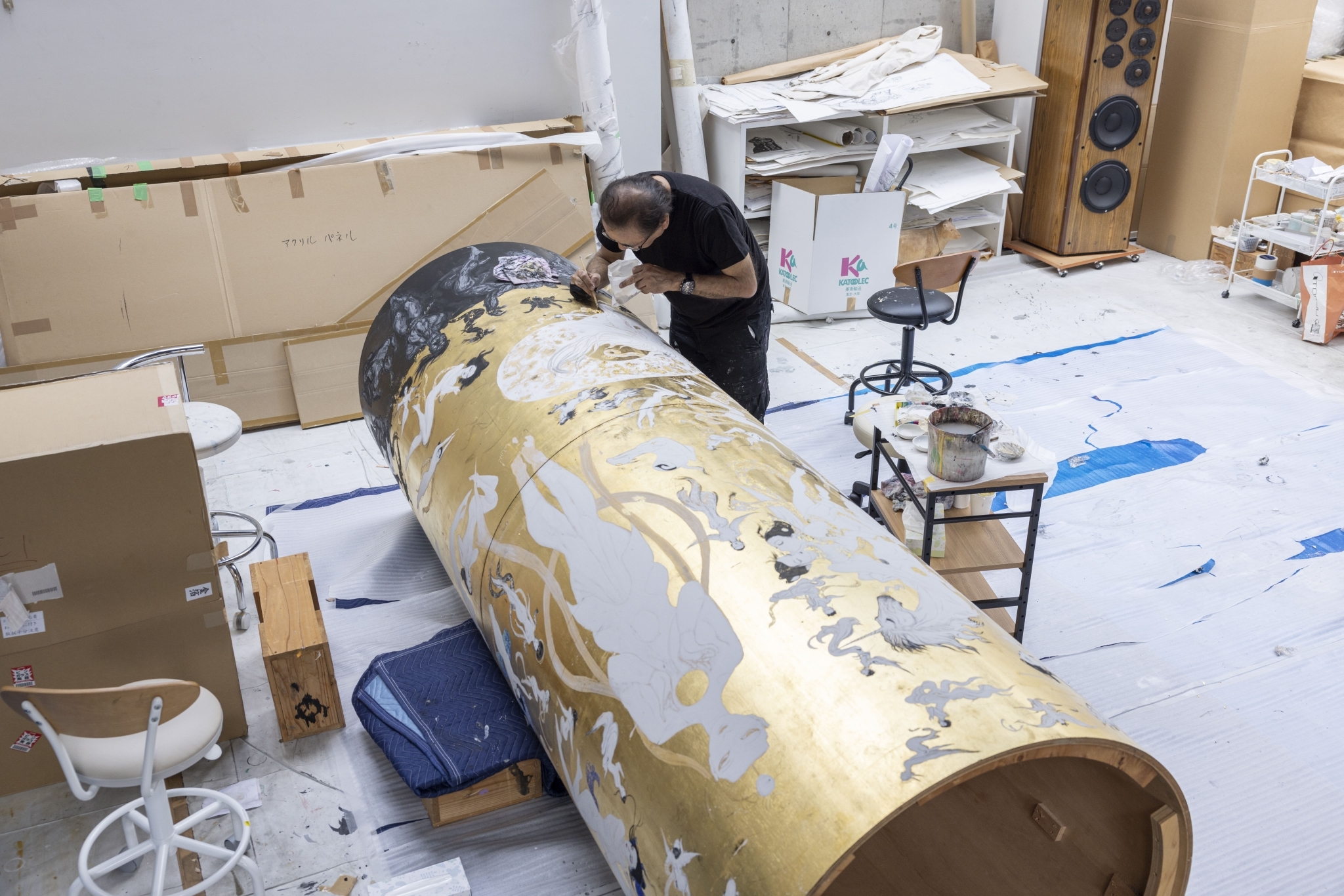
The three meter tall column features Amano’s own interpretation of Hiten, part of Mount Meru, a part of Buddhism cosmology considered to be the centre of all the physical, metaphysical and spiritual universes. Four smaller pieces will be displayed on all four sides to create a three-dimensional mandala.
Information
Golden World: Infinite Light by Yoshitaka Amano
~GOLDEN VIEW OF THE WORLD~
Running: November 23 – December 8, 2022
Venue: Myoshin-ji (1 Hanazonomyoshinjicho, Ukyo-ku, Kyoto)
Hours: 9:00-12:00 / 13:00-16:00 *Tickets sold until 15:30
Admission: Adults ¥700 / Children ¥400
Details: https://goldenworld.jp/
Official Site: https://www.myoshinji.or.jp/
-
Shoujuin Temple and THE THOUSAND KYOTO Collaborate on Special Afternoon Tea
THE THOUSAND KYOTO hotel will begin selling a special afternoon tea set in conjunction with the Buddhist Temple Shoujuin on May 9, 2022. These scrumptious treats can be enjoyed at the hotel’s second-floor cafe and bar TEA AND BAR until July 15.
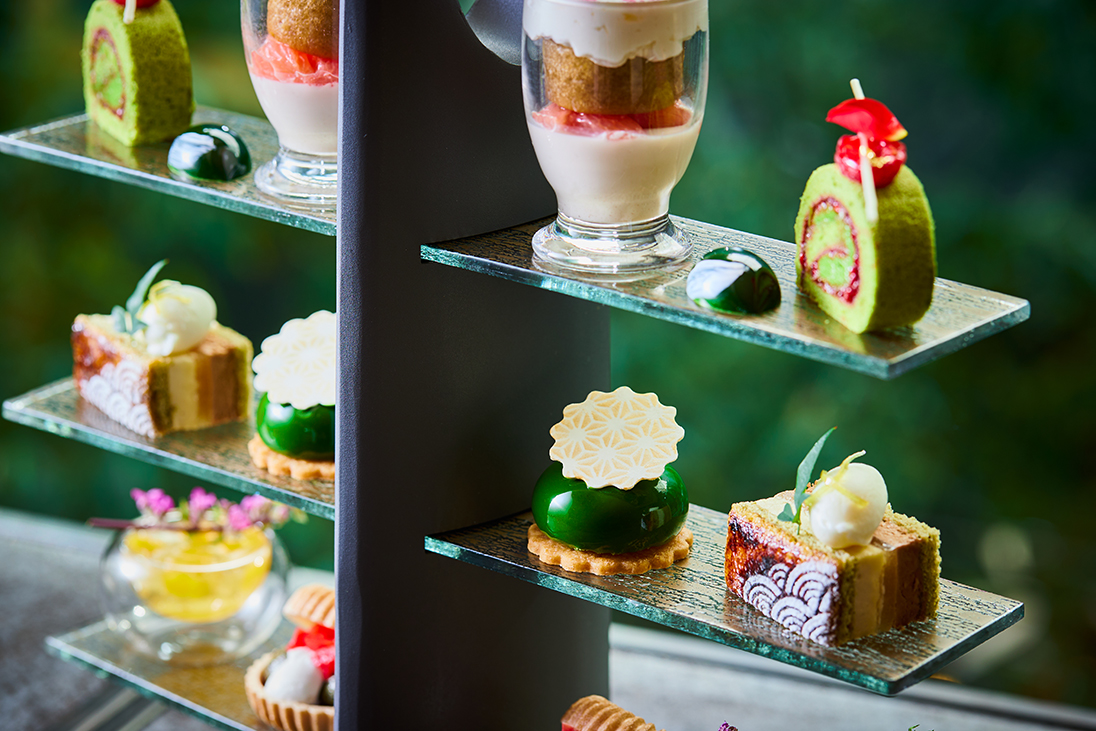
This offering was made with the thought of escaping the summer heat in mind. Customers can enjoy eight kinds of sweet and savory dishes, from quiche and salmon sandwiches to scones with honey and sweet bean paste.
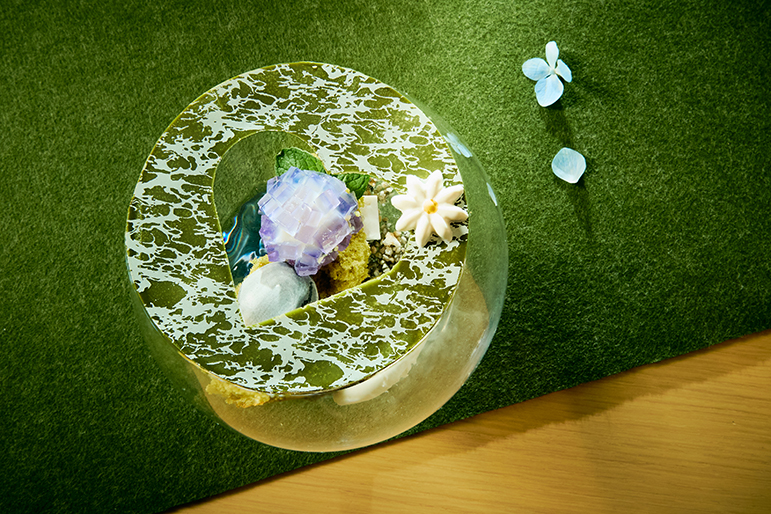
Souvenirs
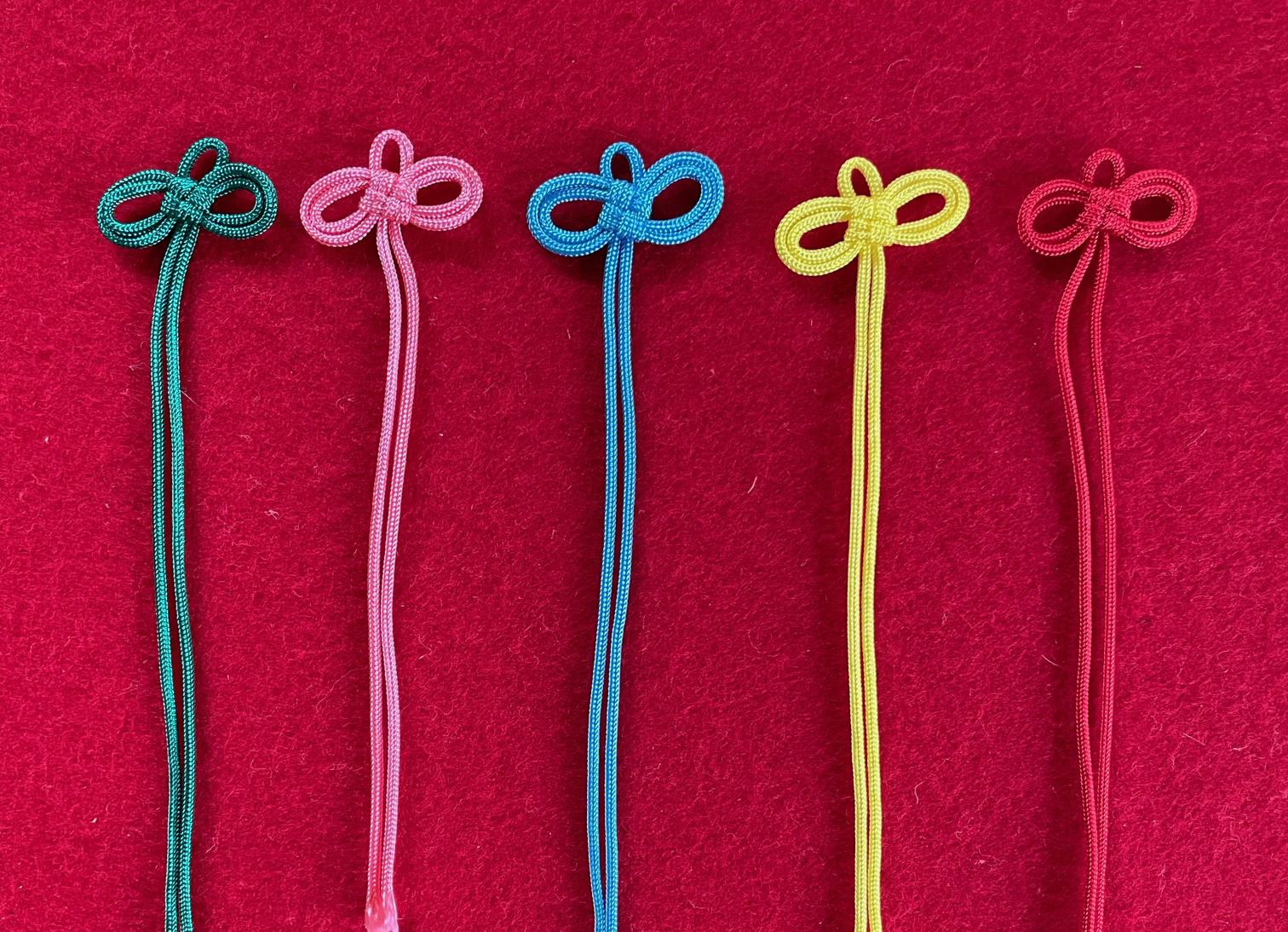
Kanouhimo
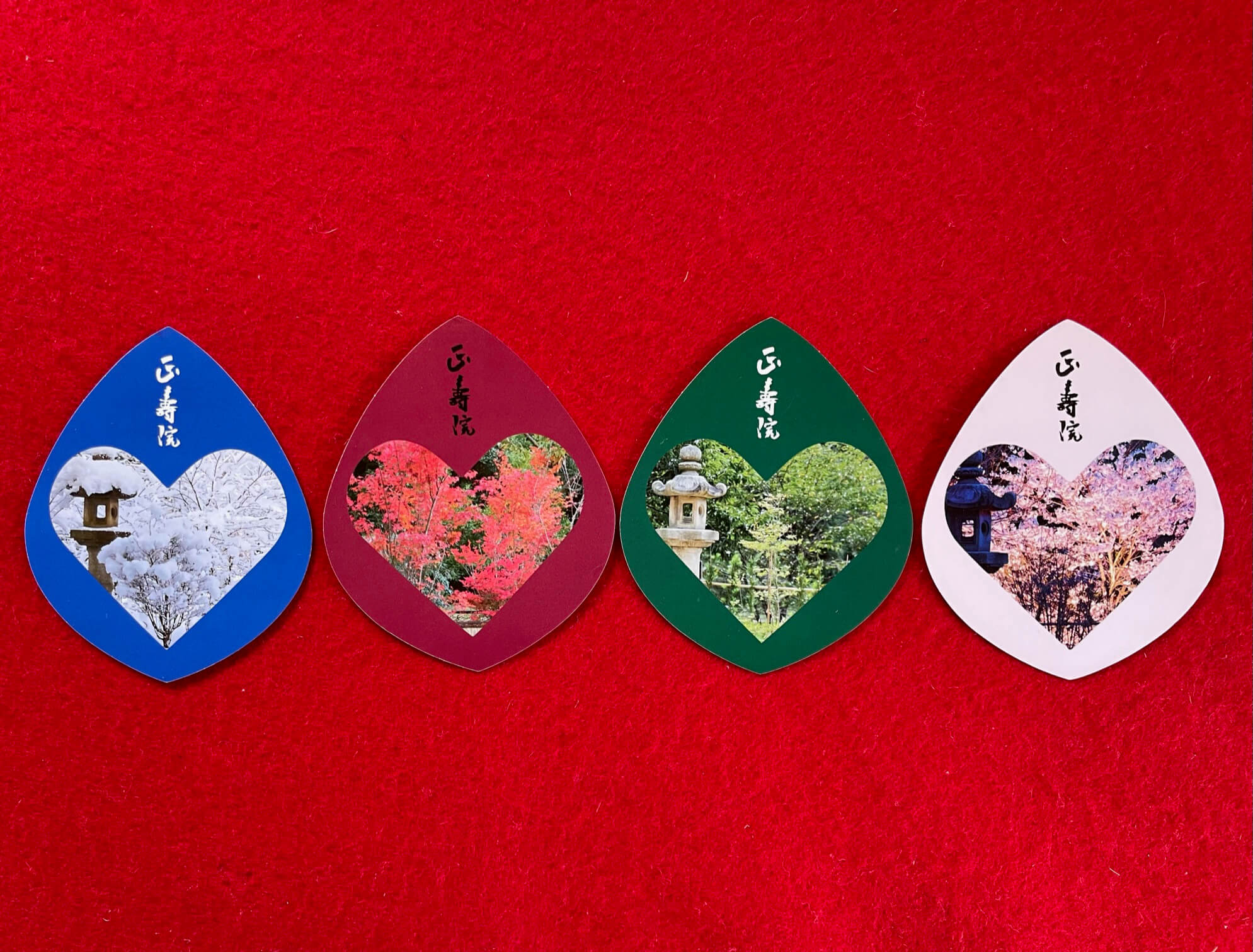
Sange
The entrance to the cafe will also be transformed to reflect the majesty of Shoujuin Temple.
The early summer scenery will be captured with majestic hydrangeas, which will surround guests and prove the perfect background for photos.
Guests can also go home with two traditional souvenirs. Both the kanouhimo and sange are lucky charms typically available at Shoujuin on holidays.Information
Shoujuin x TEA AND BAR Afternoon Tea ~Refreshing Green Tea Ceremony~
Running: May 9 – July 15, 2022 *Reservations required at least 2 days in advance.
Where: Cafe & Bar TEA AND BAR (THE THOUSAND KYOTO 2F)
Hours: First Seating 11:30~14:30 / Second Seating 15:30~18:30
Details: https://www.keihanhotels-resorts.co.jp/the-thousand-kyoto/
Reservations: https://www.tablecheck.com/shops/the-thousand-kyoto-teaandbar/reserve?menu_lists[]=623ecb27bf993d000fa9a382 -
Japanese Sweets Brand Tohouen Offers Cherry Blossom & Cat-Inspired Spring Manju
09.March.2022 | FOOD
Tohouen, a Japanese confectionary maker in Gifu Prefecture, has begun selling a springtime version of its popular cat-inspired manju. Inspired by the many cats that like to stroll around the shop’s headquarters, the new release includes cherry blossom-colored cat paws.
A traditional sweet in Japan, Manju is made from flour, rice powder, and buckwheat, with a tasty sugar and anko (red bean paste) filling.
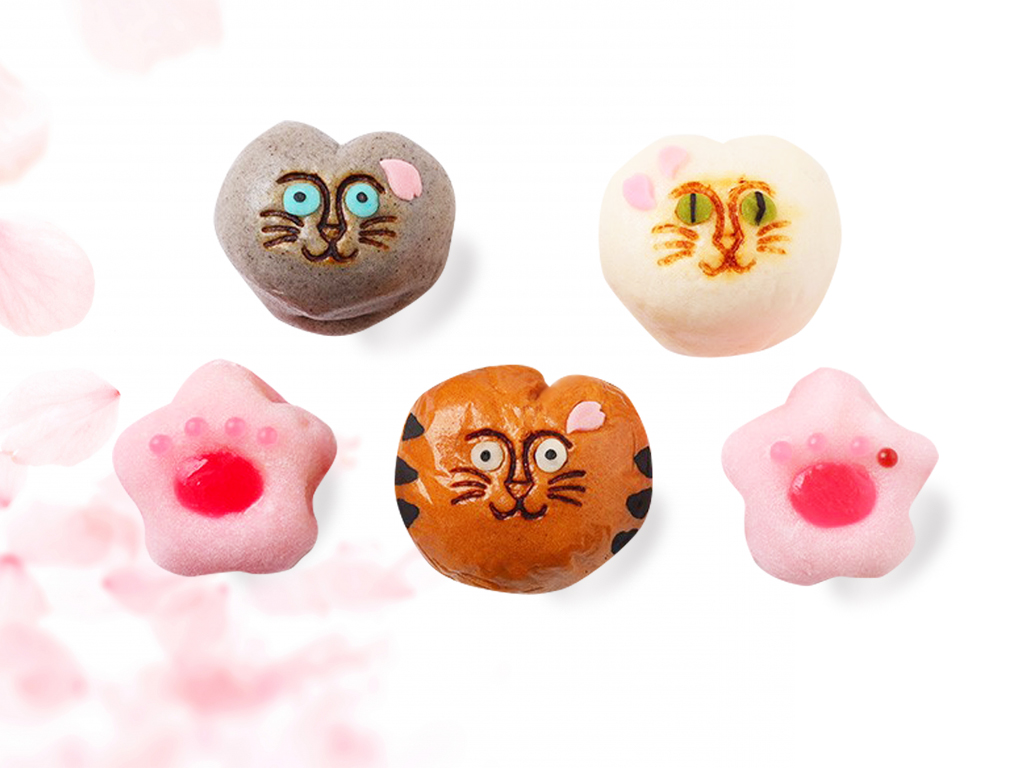
Do you think these are too cute to eat?
Information
Cherry Blossom Cat
Release Date: March 2, 2022
Where to Buy: Tohouen Stores, Tohouen Online Shop
-
Kyoto’s Kurodani Temple, Typically Closed to the Public, to Accept Visitors for Limited Time
12.October.2021 | SPOT
Constructed in 1175, the Kurodani Temple is one of the head temples of the Jodo Sect of Buddhism. Though typically closed to the public, the grounds will open for a short period to allow guests to experience some beautiful autumn scenery beginning November 12, 2021. This temple is associated with the Shinsengumi and served as the headquarters of the Aizu Clan at the end of the Edo period, so those interested in history won’t want to miss out on this incredible opportunity.
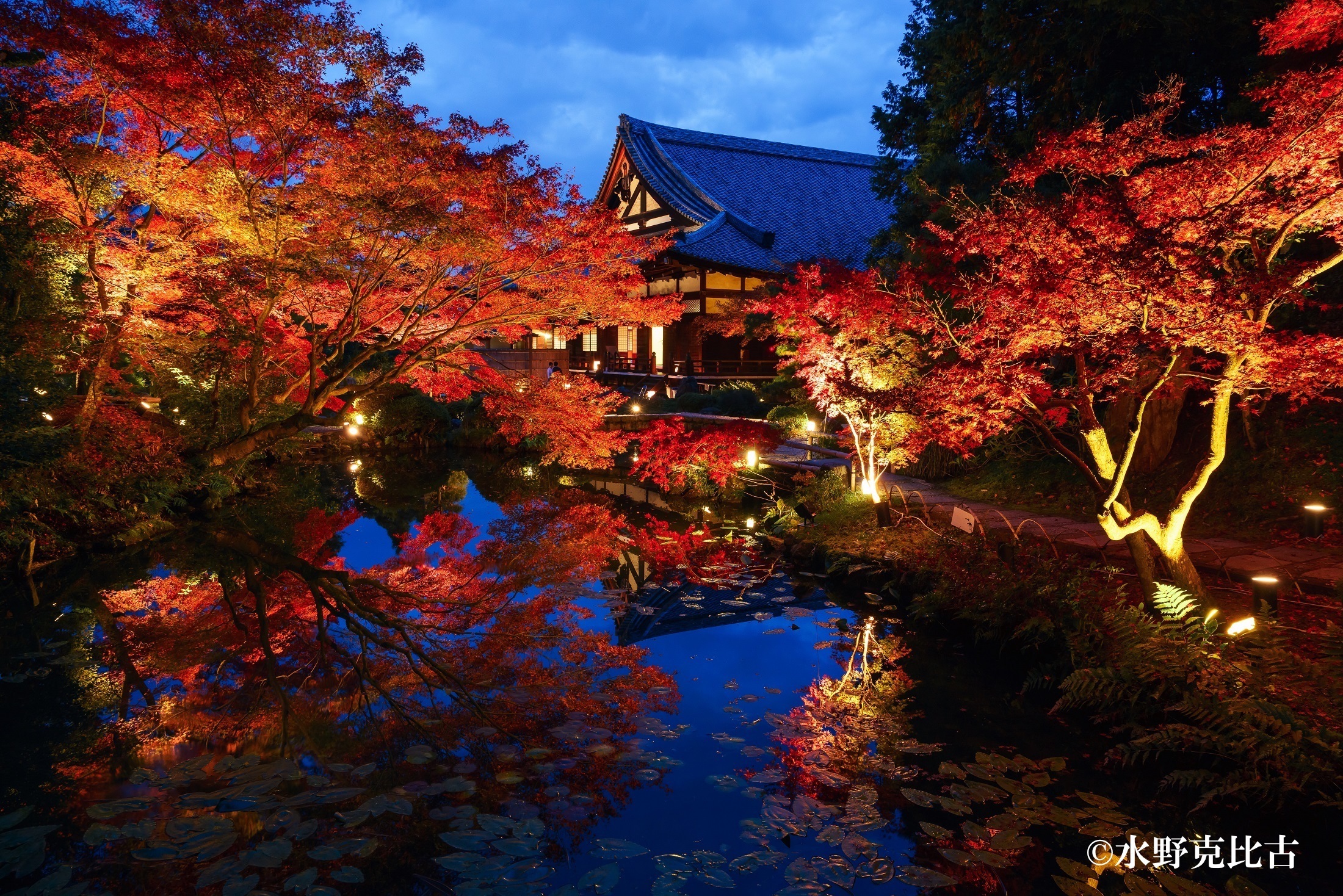
[Night] Shiun Garden
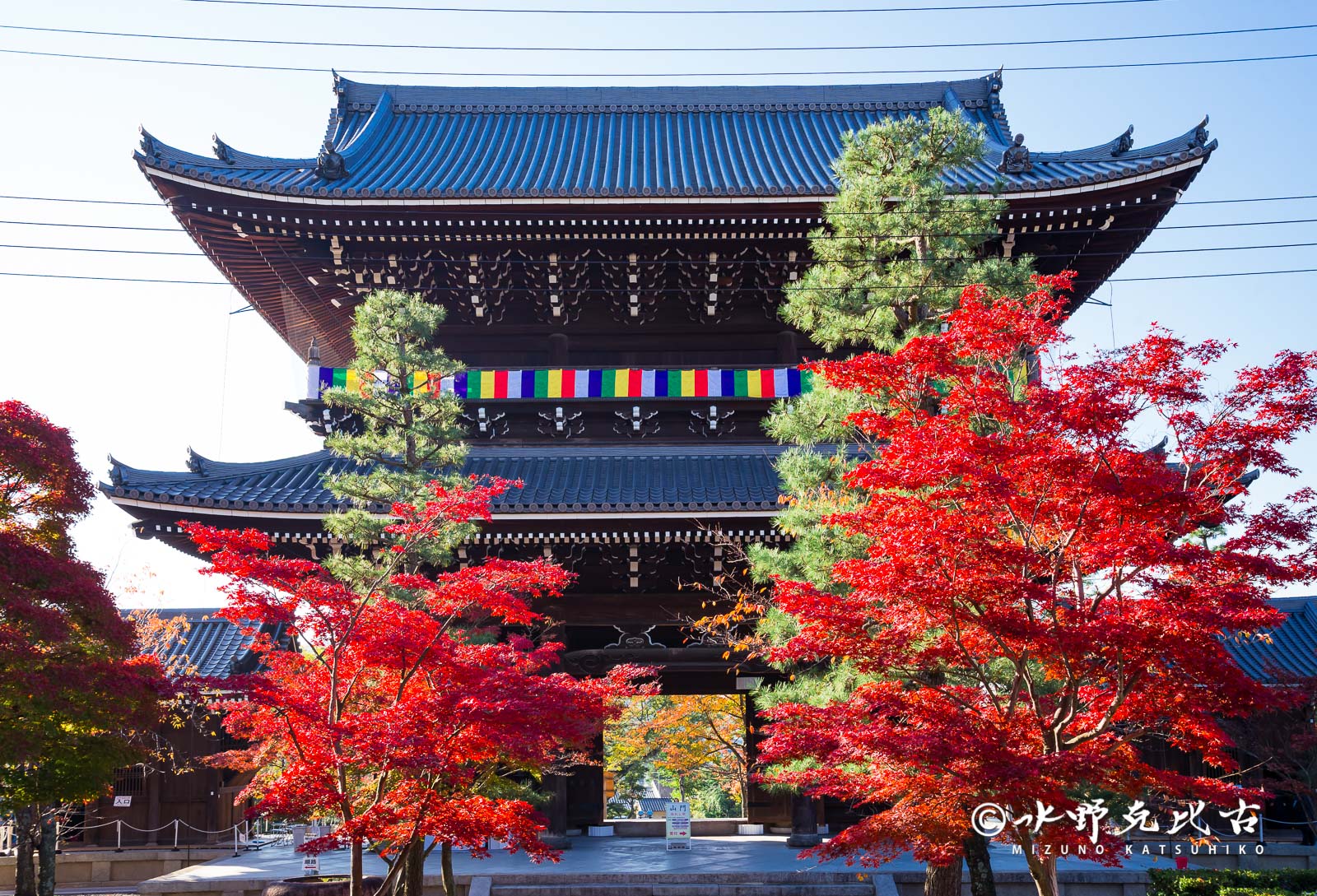
[Day] Autumn Leaves at the Main Gate
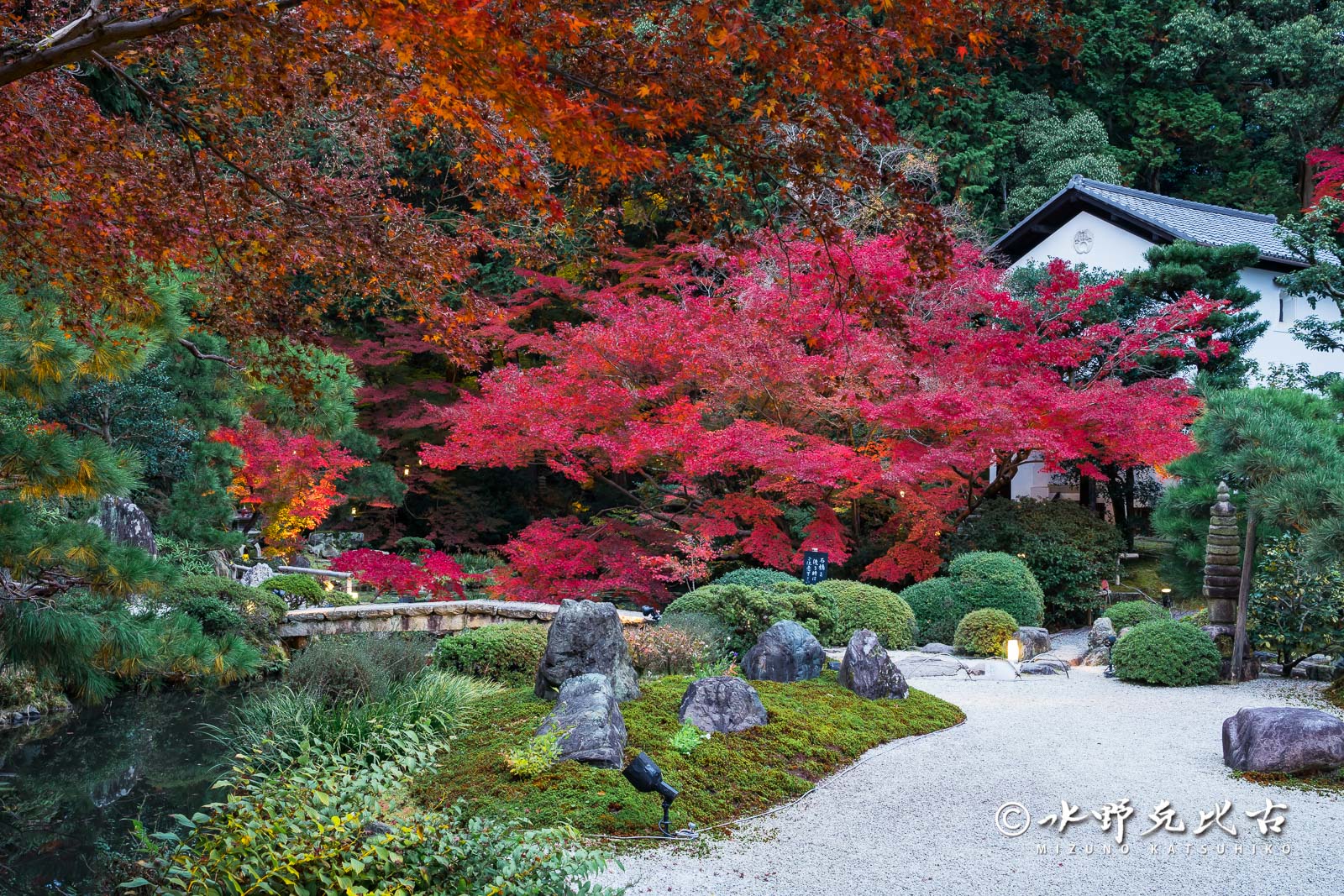
[Day] Shiun Garden
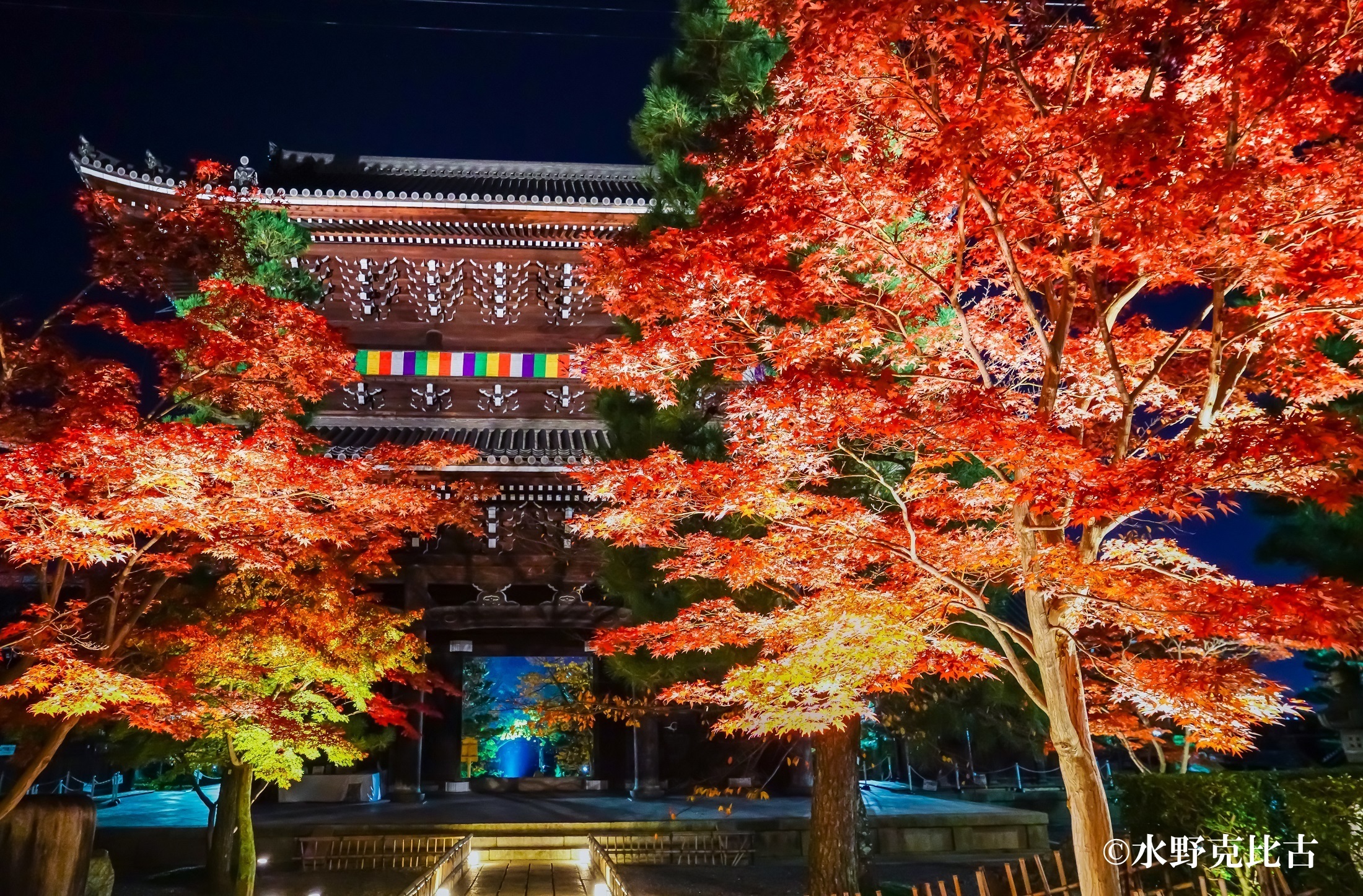
[Night] Autumn Leaves at the Main Gate
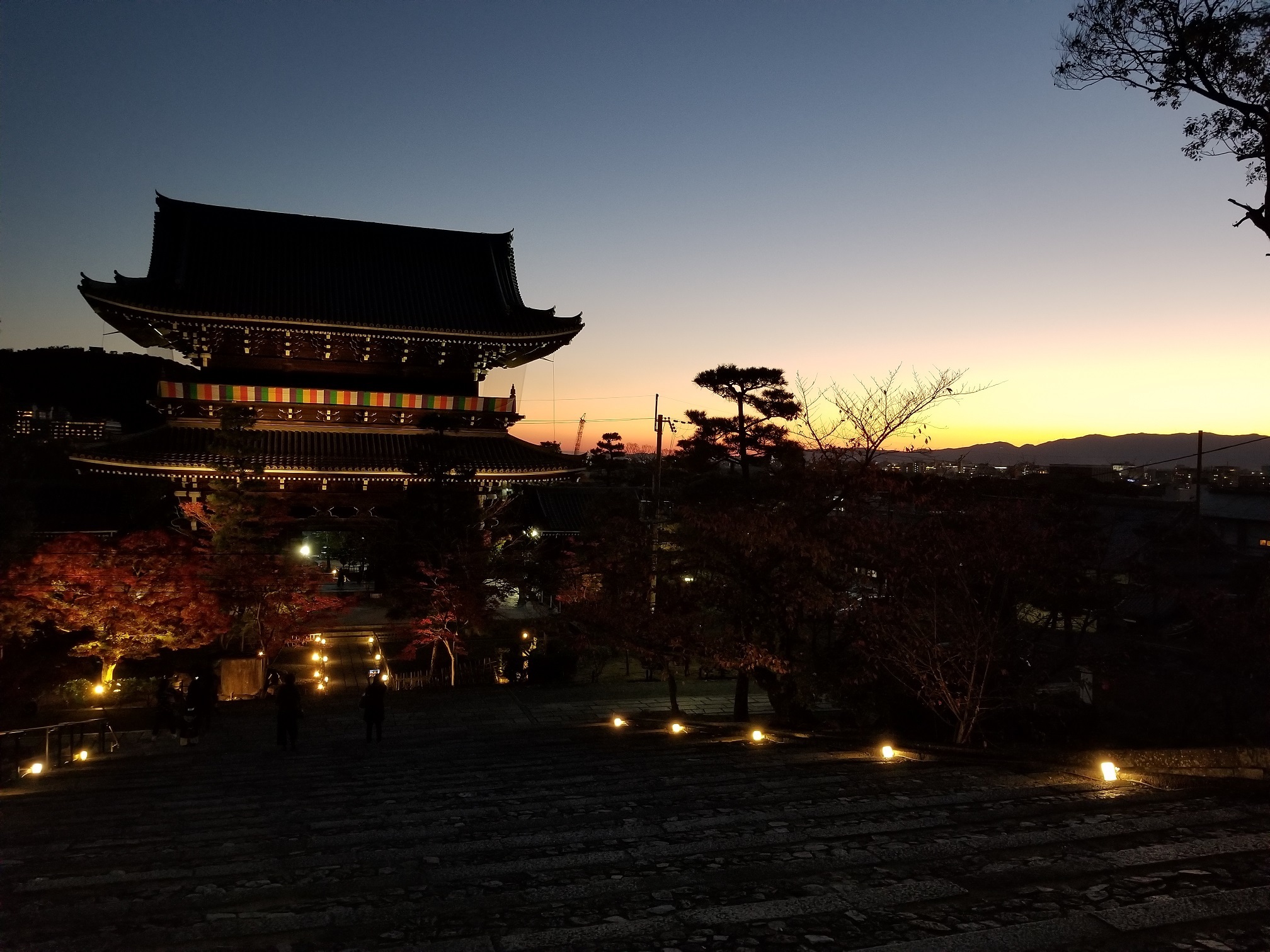
Temple Grounds at Sunset
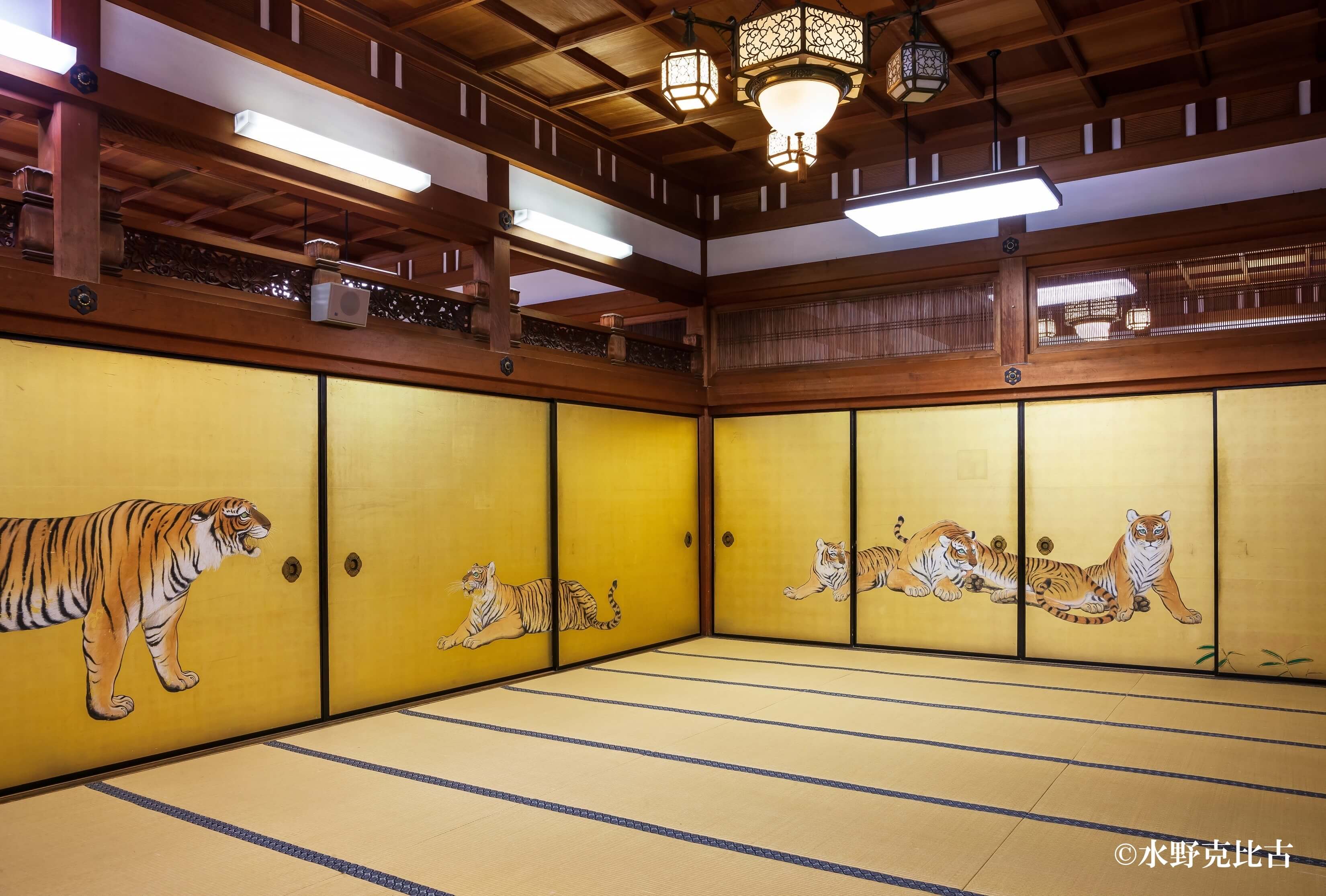
The Tiger’s Room
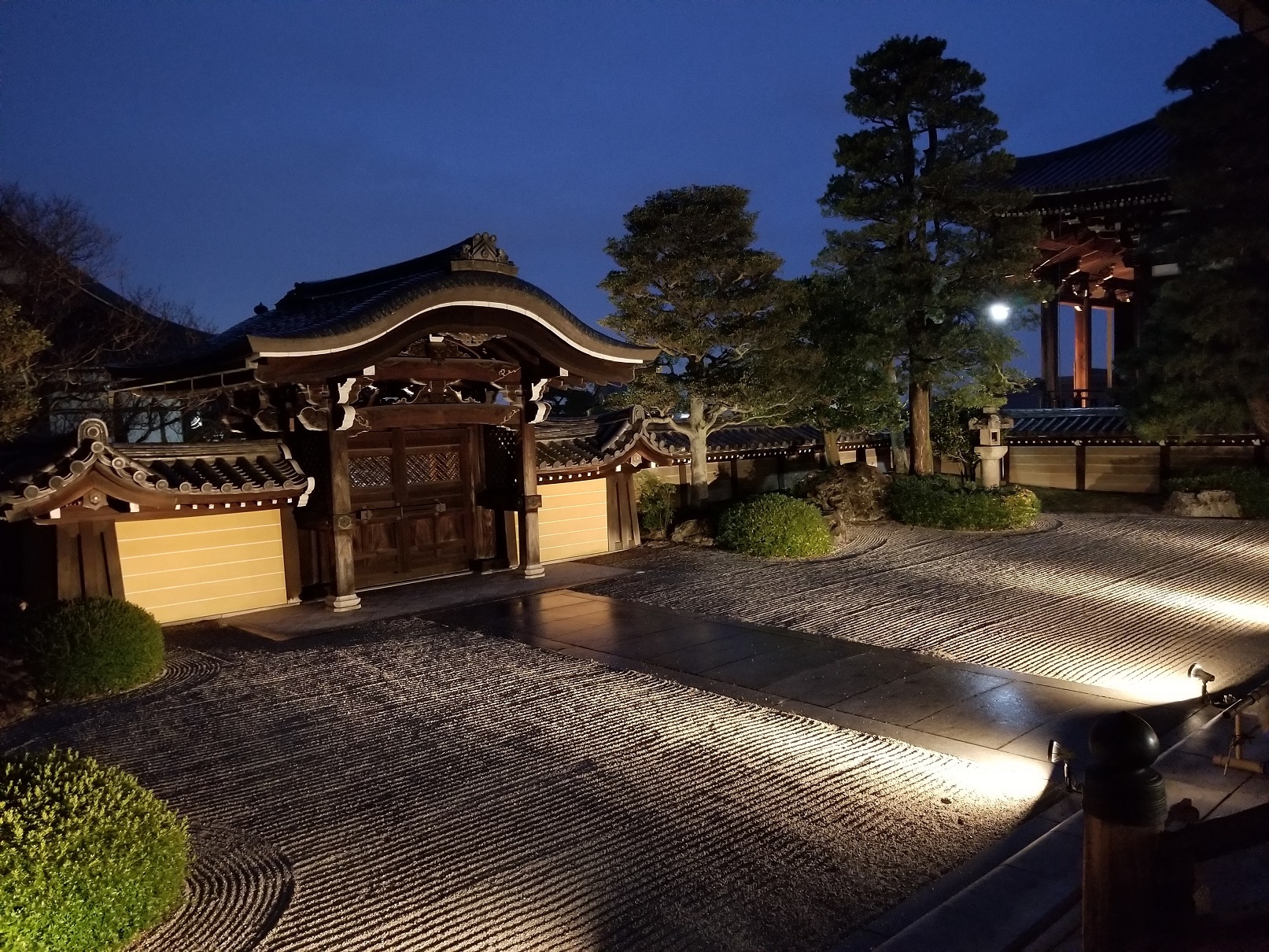
Ohoujou Garden
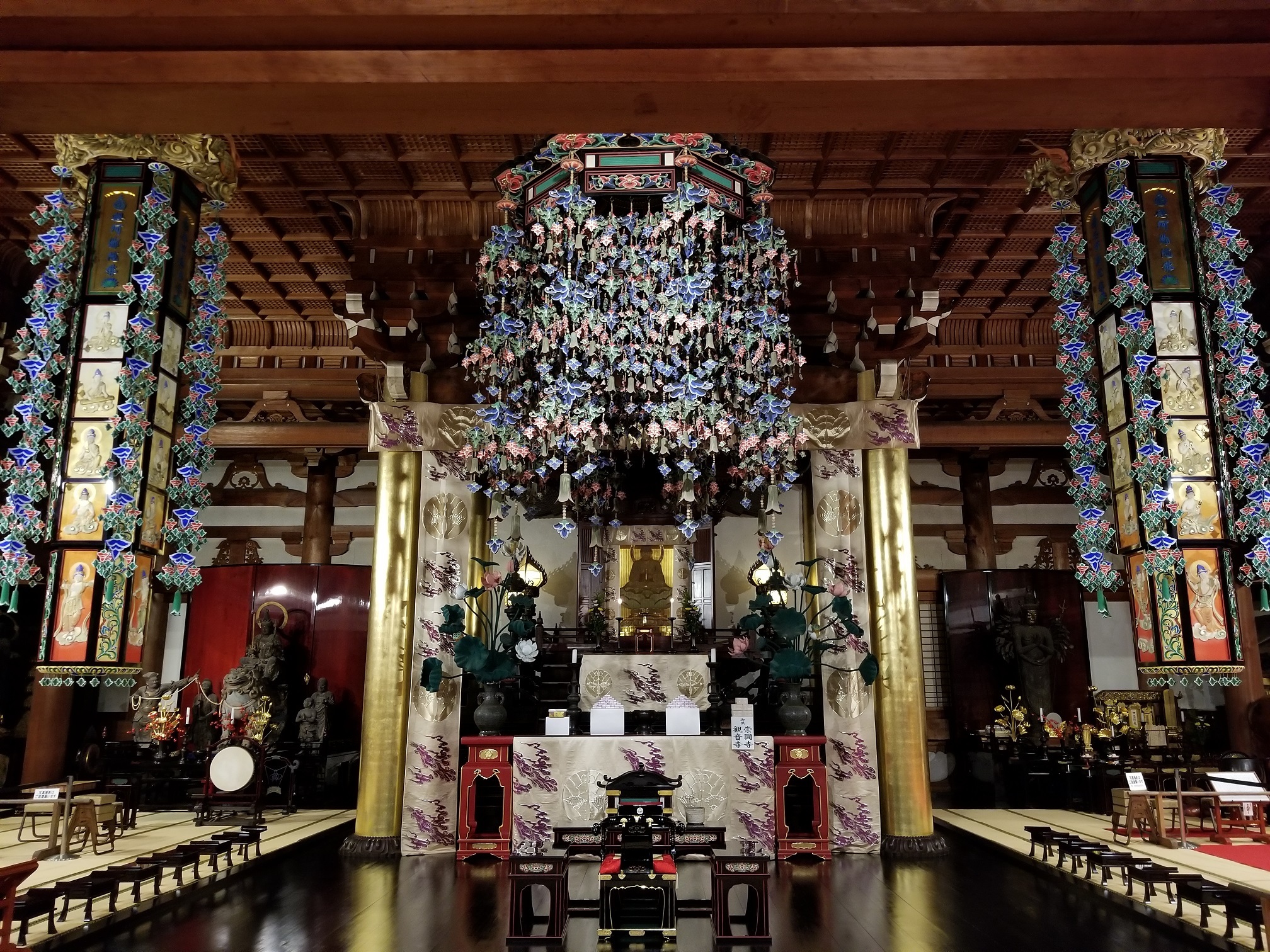
Founders Hall
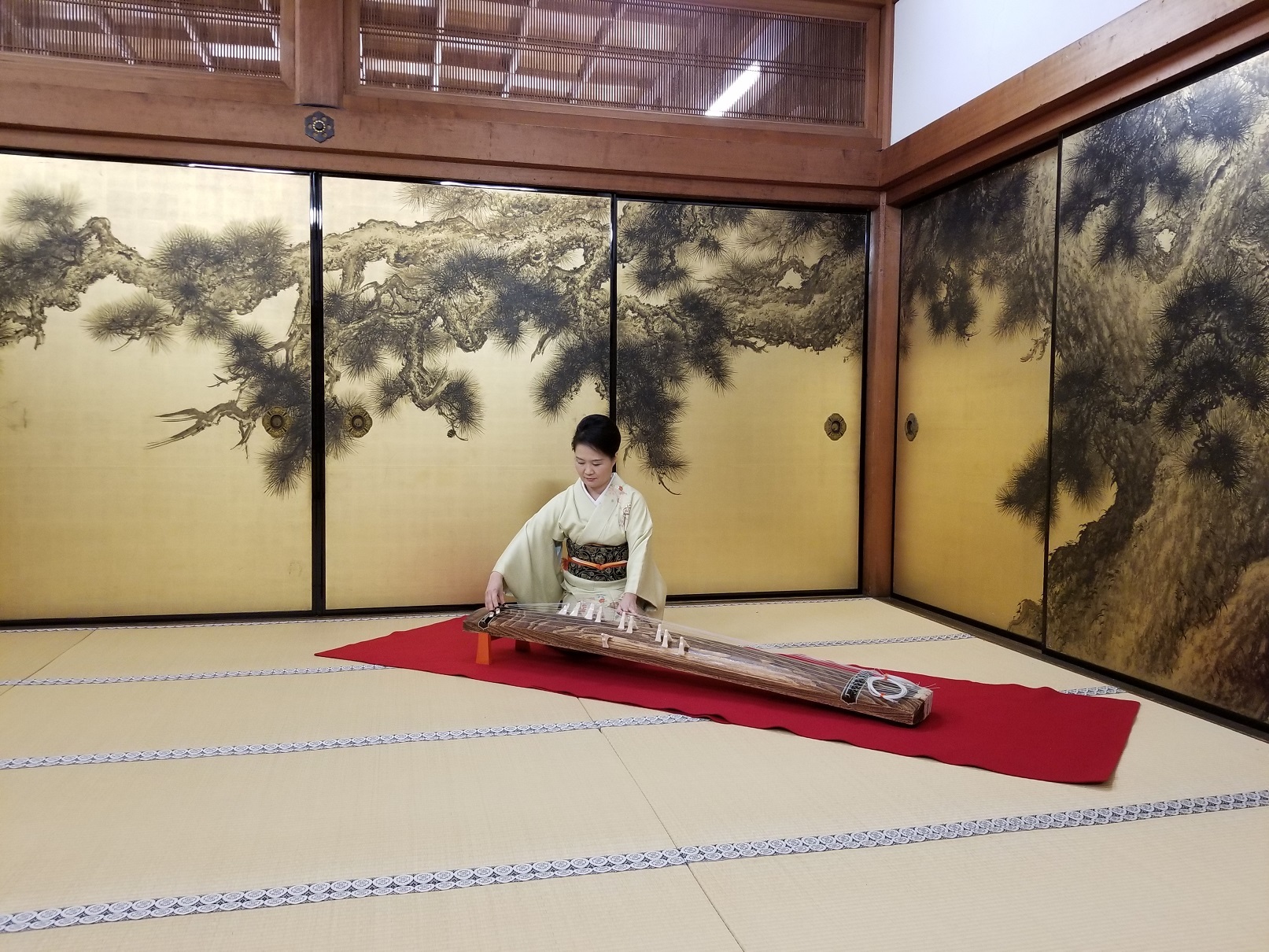
Live Koto Performance
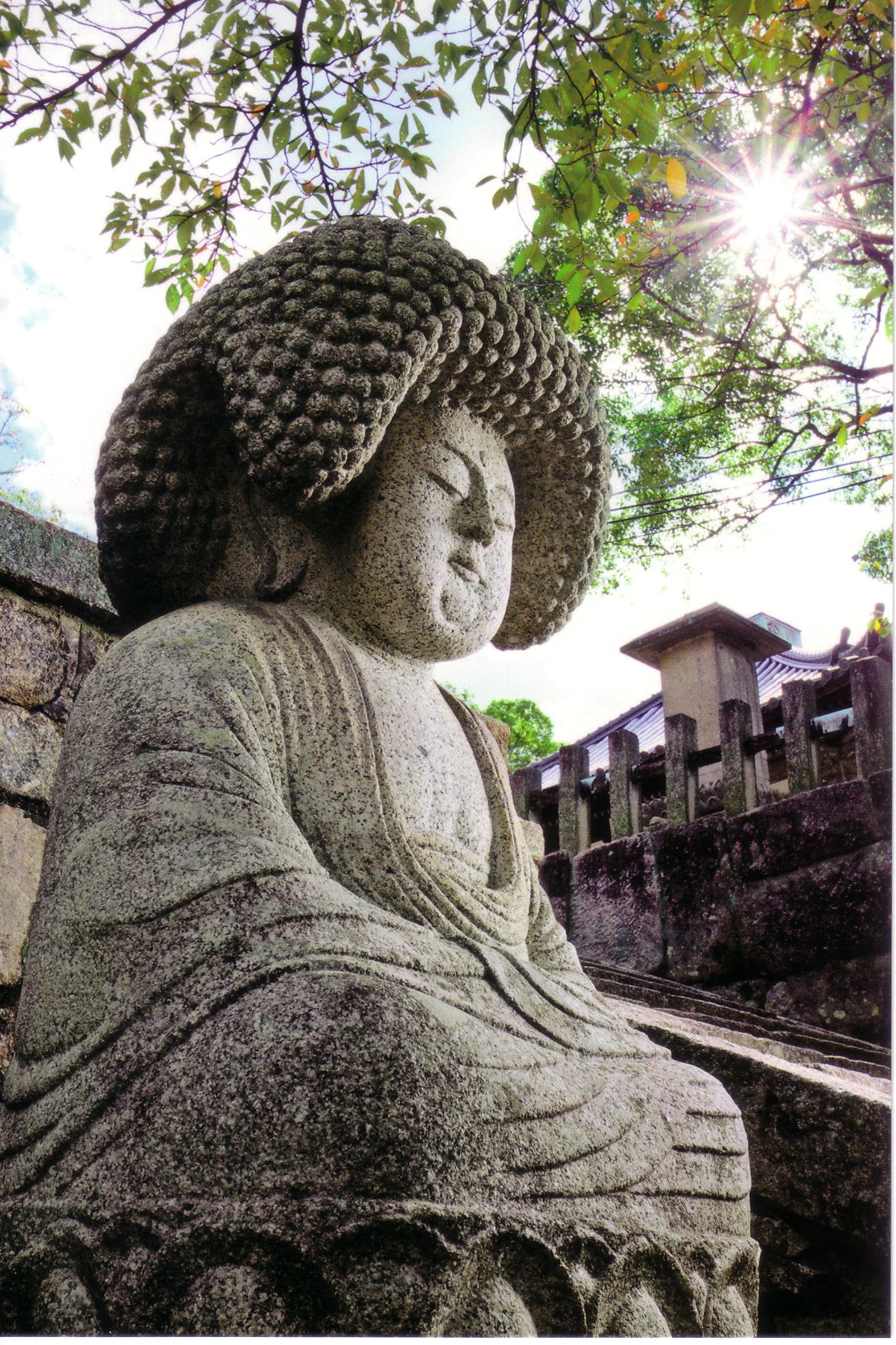
Gokoushiyuiamidabutsu, ‘Afro Buddha’
Guests will be able to enjoy the gorgeous autumn temple scenery during both daytime and nighttime, with the night viewing also offering some traditional Japanese live music. Visitors can also see various temple treasures and historical items, as well as the Tiger Room, known for its painted doors. The unique and aptly named Afro Buddha will also be on display. After training for an extremely long period of time, the Buddha’s hair piled up, giving him this strangely modern appearance.
On a clear day, guests will be able to see clear to the Abeno Harukas building in Osaka. Vividly painted ceilings and other statues will completely surround visitors in spiritual history. At night, traditional Japanese music will be played at three different times in the front gardens. On Friday, Saturday, and Sunday, the temple will offer a Premium Plan, allowing interested guests to enter the grounds 30 minutes before general admission starts. (This will require reservations made on the official website.) This will also include a guided tour!
How would you like to experience this piece of Japanese history while surrounded by unforgettable autumn foliage?
Information
Special Autumn Viewing
Kudodani Temple, Kyoto – The Head Temple of the Jodo Sect of Buddhism
Address: 121 Kurodanicho, Sakyo-ku, Kyoto
Night Viewing Details: https://www.kurodani.jp/lightup/
Day Viewing Details: https://www.kurodani.jp/sp_daytime/
Daytime Viewing
Running: November 12 – December 5, 2021
Hours: 10:00-16:30 (Final Admission at 16:00)
Special Viewing Areas: Mikado, Daihojo, the Gardens, two locations at the main gate
Night Viewing
Running: November 12 – December 5, 2021
Hours: 17:30-20:30 (Final Admission at 20:00)
Live traditional Japanese music will be performed in the garden located in front of the Main Hall at 17:45, 18:30, and 19:15
-
Buddhist-Life Themed Cafe Opens at Takayama Zenko-ji Temple in Gifu
15.August.2021 | SPOT
Takayama Hotel Zenko-ji isn’t your typical hotel: this Buddhist temple invites anyone, regardless of faith or nationality, to stay in one of its five rooms. The property has now opened the ‘Activity Cafe Zenko-ji,’ a place to rest and relax while learning more about various cultures and, of course, traditional Buddhism.
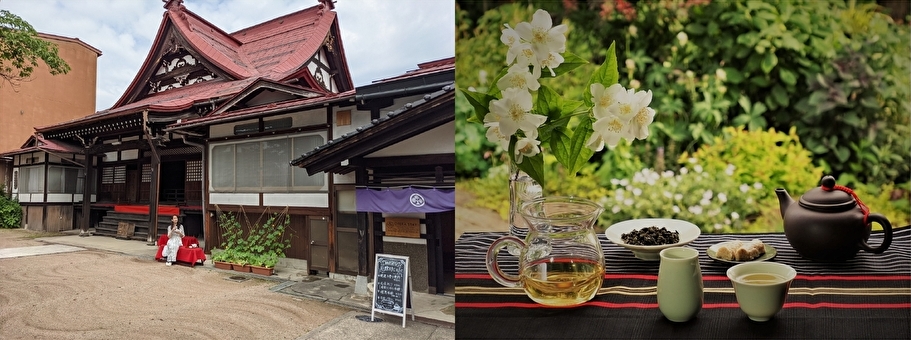
The well-ventilated and airy temple.
All drinks, including coffee and tea, are free of charge.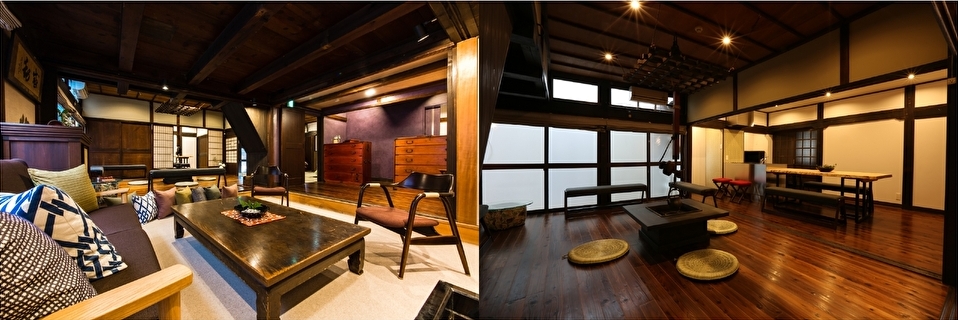
The Takayama Zenko-ji Lounge Area
Enjoy free Wi-Fi, ample power supplies, and clean restrooms.
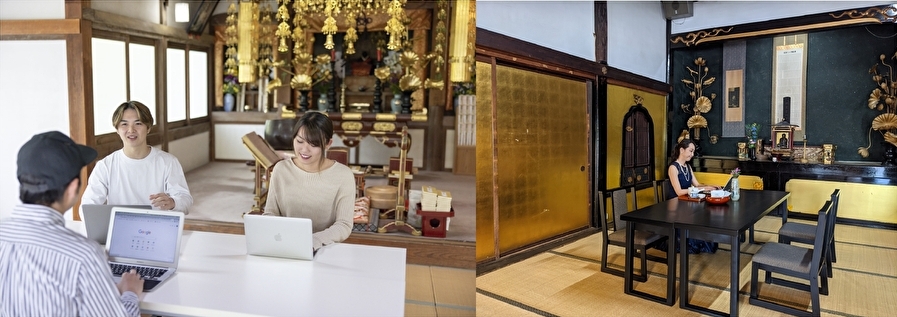
Feel free to work remotely and have meetings in the main hall.
Being in a new space will open up your mind and expand your creativity.
The cafe was first opened for a limited time beginning in April 2021, inviting locals and tourists alike to come and find stress relief while praying for an end to the Coronavirus pandemic. However, given the location’s immediate popularity, it will now be open for good.
In the midst of the Coronavirus pandemic, an increasing number of people have lost their physical and mental balance. For both the locals and visiting tourists, the temple is meant to be a place where anyone can find a sense of calm and peace of mind. Deep in the city of Takayama, this is where people are meant to relax, feel energized, and regain who they used to be before this stress became the new normal.
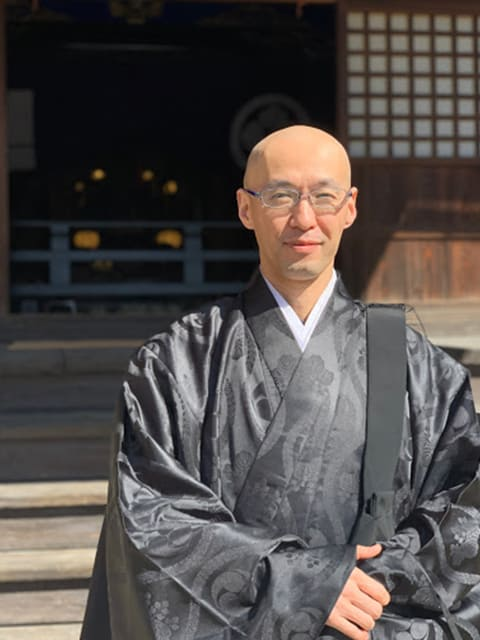
Hiroshi Yamamoto, a Buddhist priest who works as the manager at Temple Hotel Zenko-ji, is the founder of the Activity Cafe. Hoping to help bring back the bustling tourist atmosphere of Takayama, he intends the space to be a meeting ground for locals and visitors from around the world to interact naturally.
After graduating from an American university and working as an English teacher, Yamamoto became ordained as a Buddhist monk. Now a certified meditation instructor, he specializes in teaching meditation and Buddhist programs in English.
Those utilizing the cafe can experience asceticism by walking through a dark tunnel to help find their inner peace, and can also try their hand at sutra-writing!
How would you like to spend some time at the Activity Cafe in Takayama?
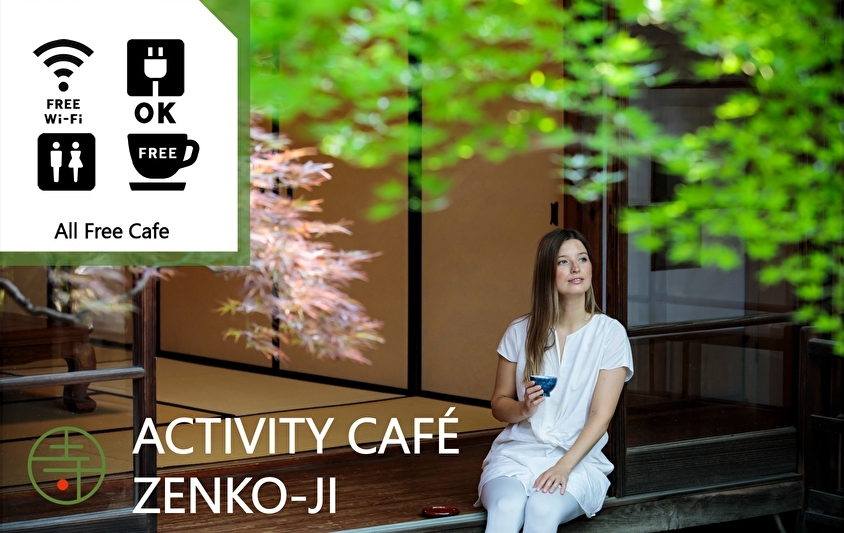
Information
Activity Cafe Takayama Zenko-ji
Address: 4-3 Tenma-cho, Takayama, Gifu
Phone: 0577-32-8470
Reservations not needed
Official Site: https://oterastay.com/zenkoji/cafe/
-
GALLERY COLLAGE: Stay at the New Contemporary Art Gallery in Gifu
GALLERY COLLAGE is the name of the new contemporary art gallery that recently opened at NIPPONIA Mino Shokamachi, an accommodation housed in a remodelled townhouse that’s situated in a place famous for its mino variant of Japanese washi paper.
1. Raising local value with contemporary art
The world of local culture, such as local business and customs, has been abandoned in favour of rapid economic growth and globalisation. But those halcyon days and their background, which are rooted in their respective local history, culture, and nature, have once again come to be of huge importance to many people. It’s in these times that things like the sounds of insects in the evening that are local to the area should serve as the direction that people move forward in. The artwork showcased at GALLERY COLLAGE will depict scenes familiar to locals to show them in a new light. In doing so, NIPPONIA Mino Shokamachi hopes that connecting contemporary art with washi paper will promote and raise the value of the local traditional industry.
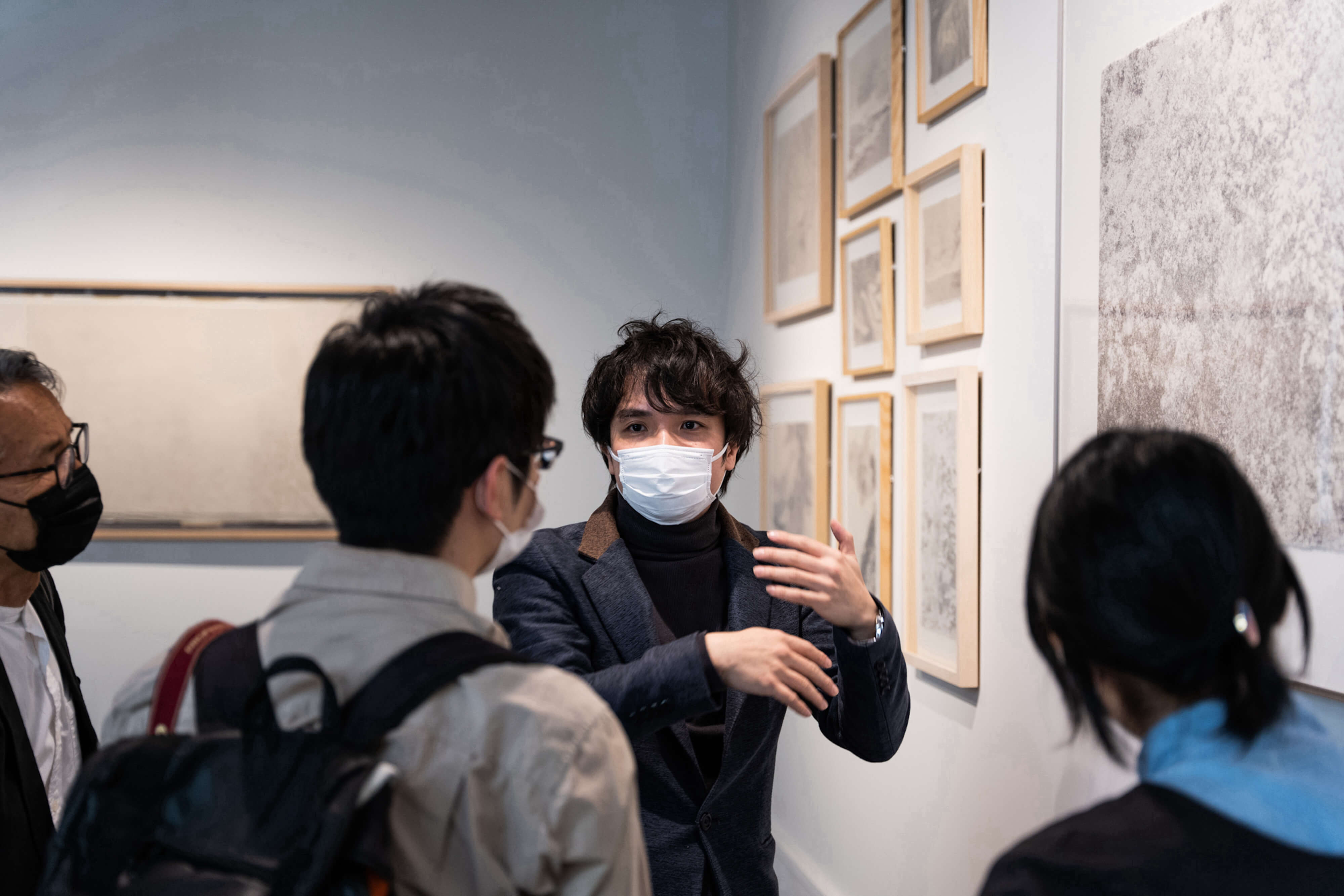
2. Season Lao’s “Mino – blank-leaving” exhibition on show
Contemporary artist and photographer Season Lao is currently holding his Mino – blank-leaving exhibition at the site. He has used his unique approach to utilise mino paper, a type of Japanese washi paper with a history spanning 1,300 years and is also registered as a UNESCO Intangible Cultural Property. An online talk will take place on May 22 hosted by participants of Lao’s photography workshop that was held for the event’s opening. It focuses on photos taken by locals, including pictures from their high school days.
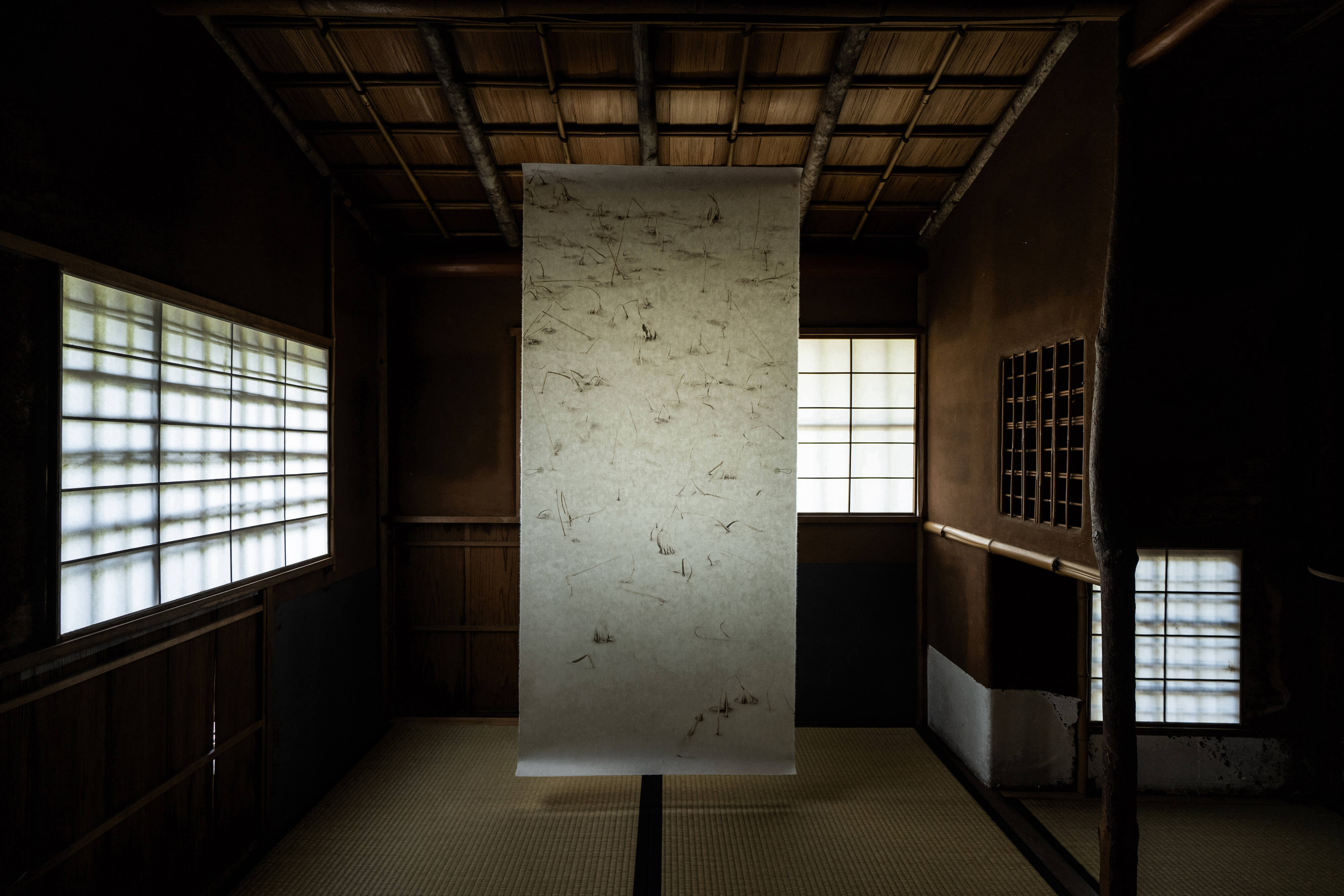
3. Season Lao’s Accommodation Plan
With support from NIPPONIA Mino Shokamachi, the Season Lao Accommodation Plan will see guest rooms decorated in numerous artworks by the artist, and guests will be given a tour of the mino paper factory amongst other exciting things.
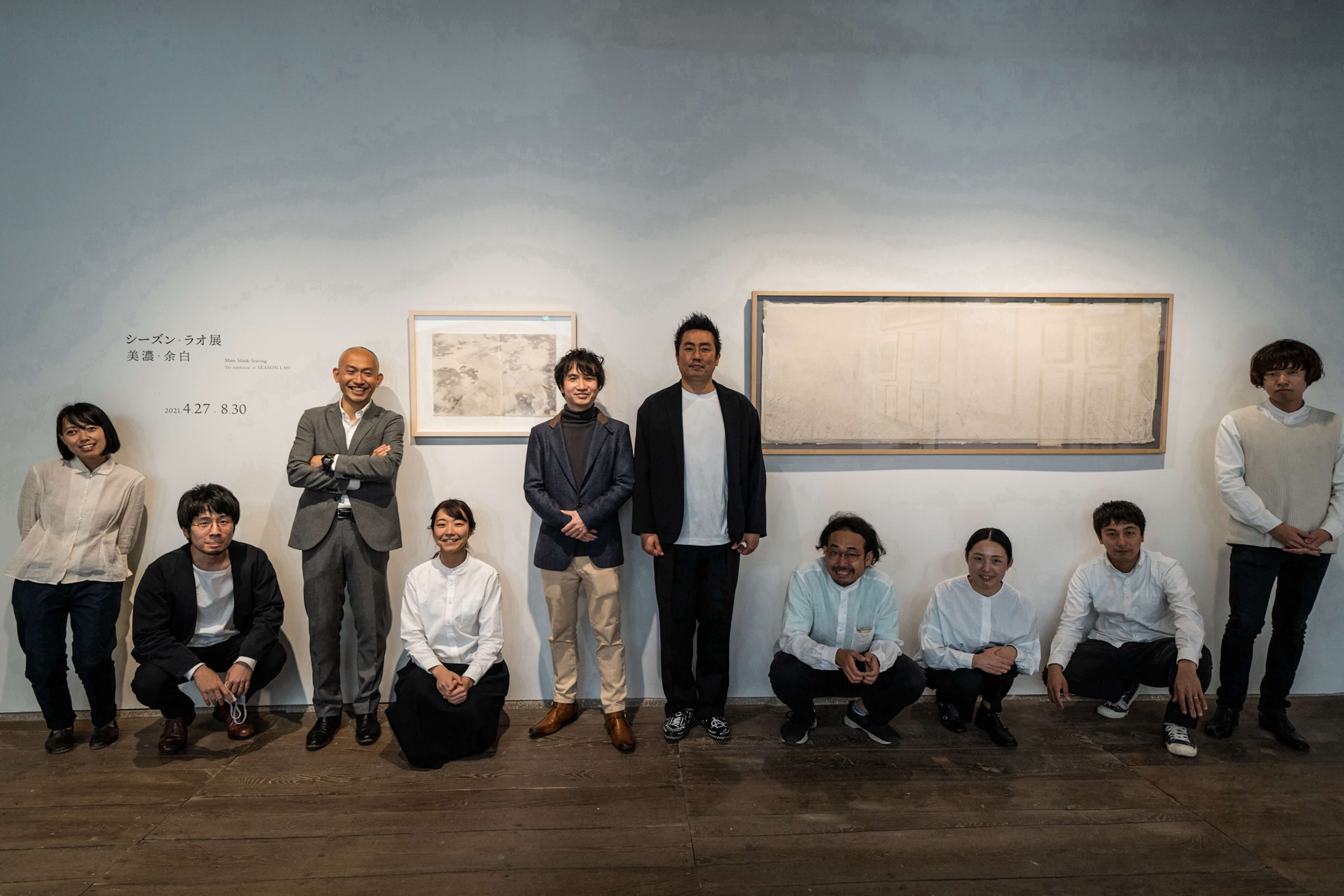
Information
GALLERY COLLAGE
Location: NIPPONIA Mino Shokamachi
Address: 1912-1 Motozumichō, Mino, Gifu 501-3728, Japan
Facilities: GALLERY COLLAGE / Washi-narySeason Lao Accommodation Plan Bookings: https://www6.489pro.com/asp/489/Ex.asp?p=Ax9TBvFz41
Season Lao: http://www.season-lao.com/art-photo/?p=2766
Official Website: https://nipponia-mino.jp/?_ga=2.217144146.57539692.1620165152-665458390.1620165152
-
Watch Gifu Prefecture’s ‘Jikabuki’ Local Kabuki Theatre Plays On YouTube
07.December.2020 | MOVIE
As part of this year’s Gifu, Land of Clear Waters Ji-Kabuki All-Star Performance 2020, Gifu Prefecture has posted a special commentary video over on the official YouTube channel of Gifu Seiryu Bunka Plaza which combines footage from two local kabuki plays held this year.
The local kabuki of Gifu
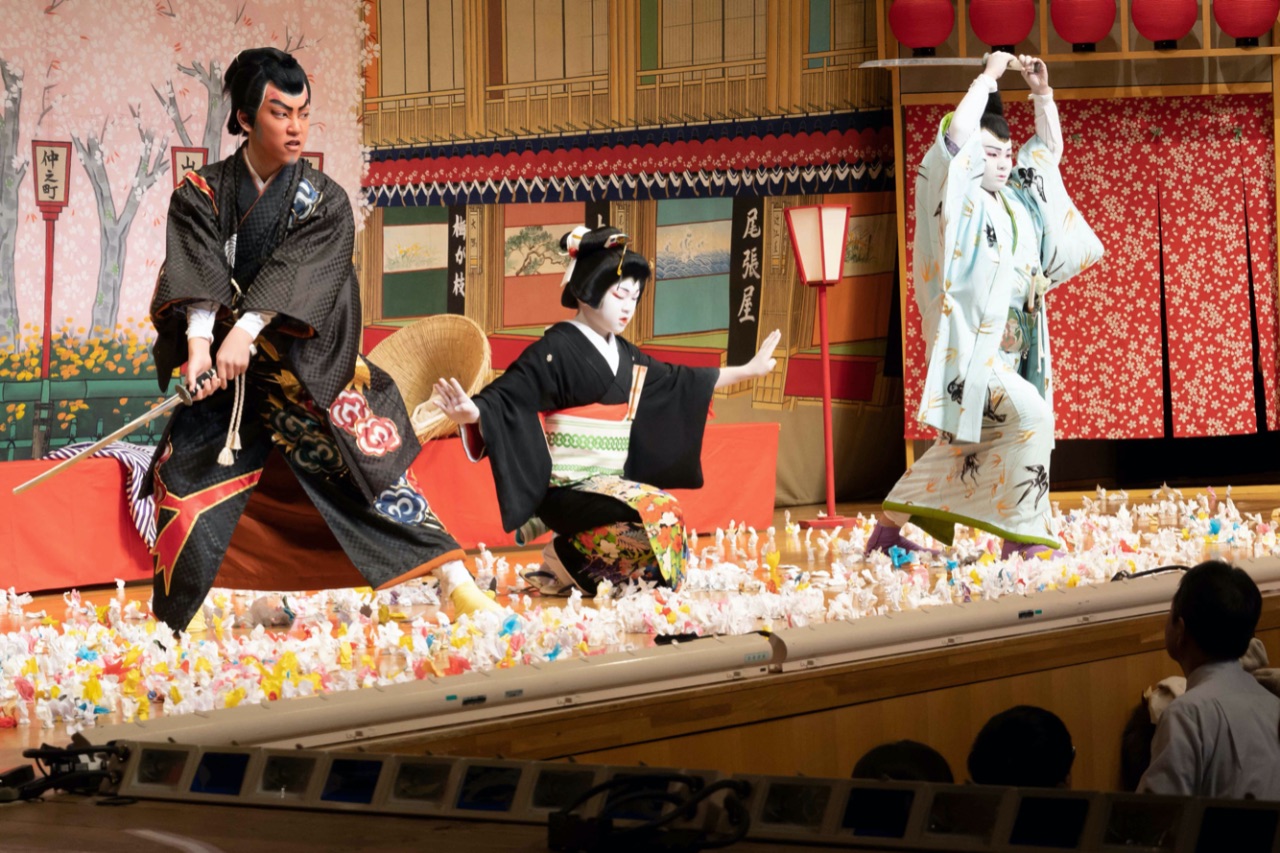
Japan is home to 200 jikabuki, or ‘local kabuki,’ preservation organisations, 30 of which can be found in Gifu Prefecture. Gifu is one of the most active regions for jikabuki in the whole of Japan. The prefecture also has 9 historical shibai-goyas, or playhouses, some of which are over 100 years old.
Gifu, Land of Clear Waters Ji-Kabuki All-Star Performance 2020
https://www.youtube.com/channel/UCx_NJKW7JOicMjhzfqBC1hQ
Gifu Seiryu Bunka Plaza made the decision to postpone the 11 jikabuki performances that were scheduled to take place January to July 2020 this year. They are being rescheduled for 2021, so for now people can enjoy the content over on their official YouTube channel.
Information
Gifu Seiryu Plaza
Official Website: https://www.seiryu-plaza.jp/Gifu Jikabuki
Official Website (English): https://www.jikabuki-gifu.com/
-
Autumn Lights Set to Illuminate Kyoto’s Konkai-Komyoji Temple This November
04.October.2020 | SPOT
Autumn illuminations are set to shine on Konkai-Komyoji Temple in Kyoto from November 13.
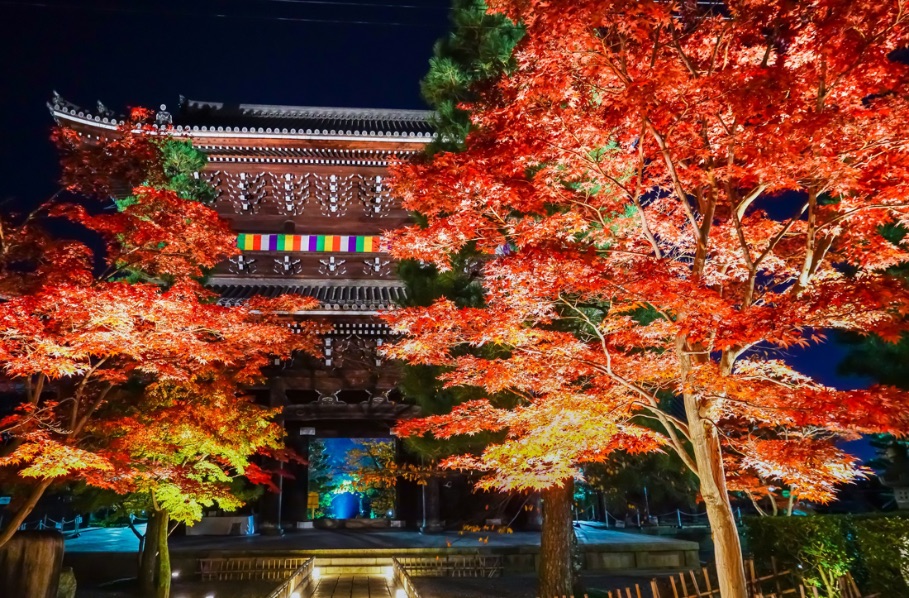
Konkai-Komyoji Temple is a Buddhist temple that was founded in 1175. It is one of the eight temples of the Jodo sect of Buddhism and his home to numerous treasures including a painting by Edo period painter Itō Jakuchū, folding screen paintings by Tomioka Tessai, and more. There are many wonders to behold at the temple, such as the Tora-no-ma which has sliding doors that depending on how they are open or closed display a different number of tigers, or the Shiun Gardens which have a stream that reflects the beautiful autumnal colours of the overhead trees.
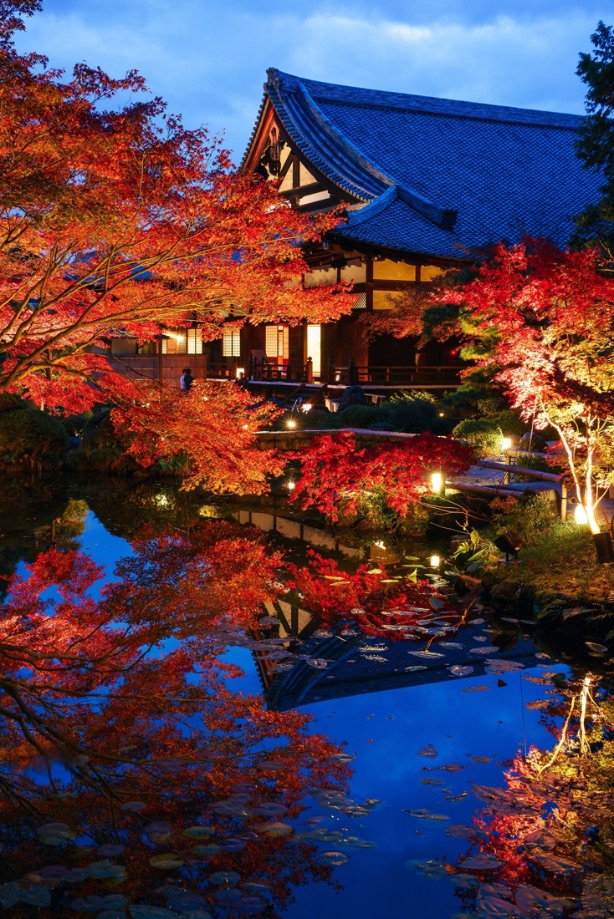
The temple is also home to the Goko Shuyui Amida Butsu statue, which has been picked up by the Japanese media on many occasions and referred to as the “Afro Buddha” due to its afro hairstyle.
There will be Japanese music performances with traditional instruments like the koto and shinobue three times an evening for the illumination event. If you’re in Kyoto this autumn, this is one event to not miss.
Information
Konkai-Komyoji Temple Autumn Lights
Running: November 13, 2020 – December 6, 2020Viewing Hours: 17:30-20:30 (Last Entries 20:00)
Price: General ¥1,000 / Elementary School Students ¥500 / Infants – Free / Groups of 20+ ¥800 each
Konkai-Komyoji Temple
Address: 121 Kurodanichō, Sakyō-ku, Kyoto
Official Website: https://www.kurodani.jp/lightup_aut/ -
Kyoto’s Rokuo-in Temple to be Illuminated in the Autumn Evenings
25.September.2020 | SPOT
Keifuku Electric Railroad is lending its strength to Rokuo-in Temple in Kyoto this autumn to light up the ancient site in the evenings from November 14 to December 6.
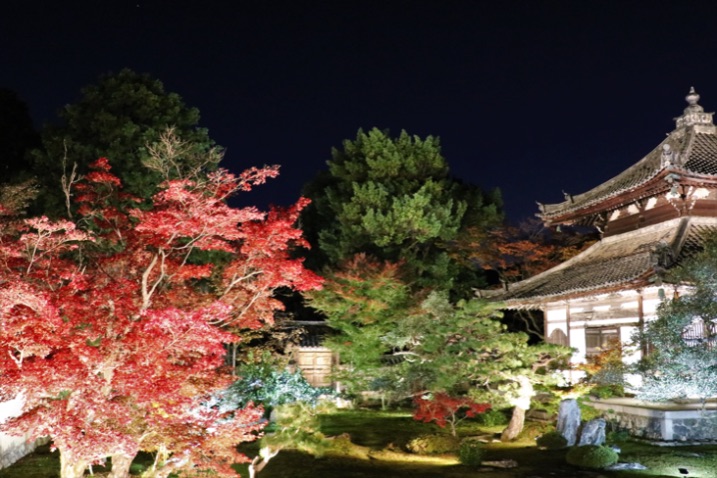
Shari-den (Photo taken in 2019)
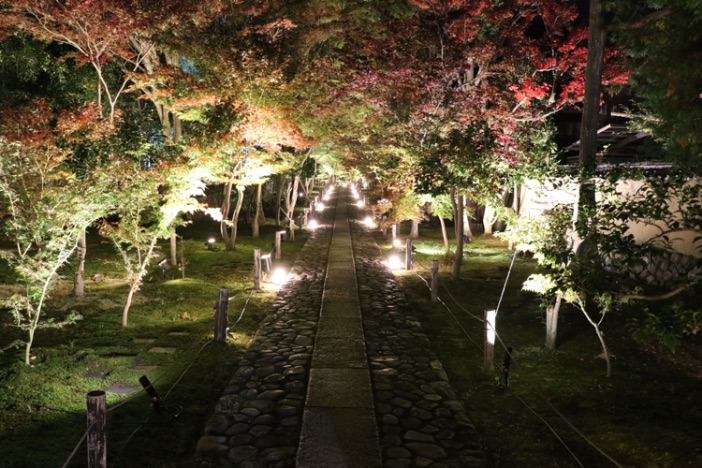
Temple path (Photo taken in 2019)This year marks the 5th run of the autumn evening light-ups. The temple, just a four minute walk from Rokuoin Station, is known for its beautiful maple trees which blossom breathtaking autumnal colours during the fall season.
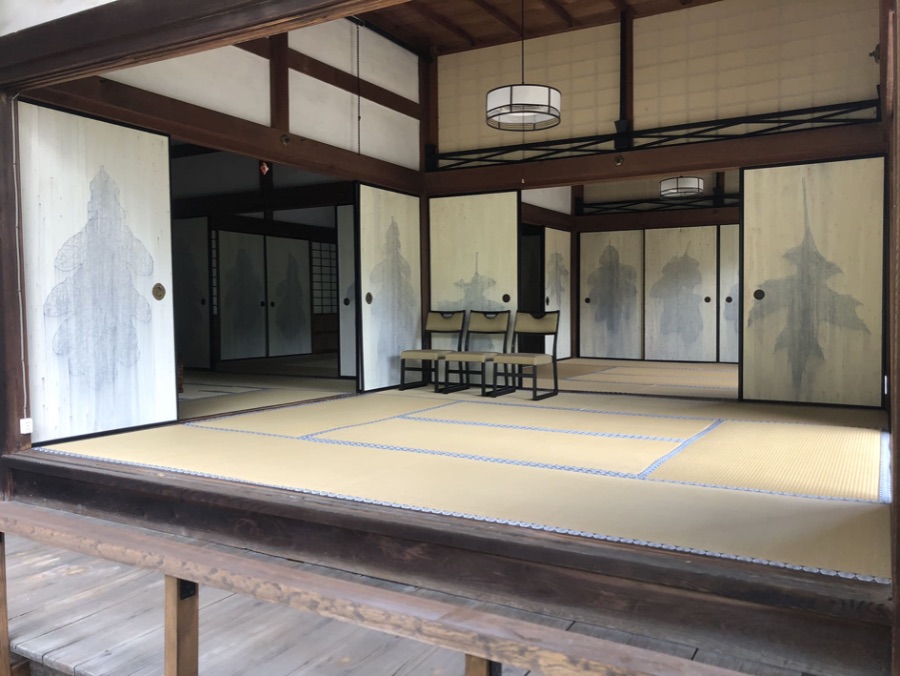
Temple reception hall with fusuma images
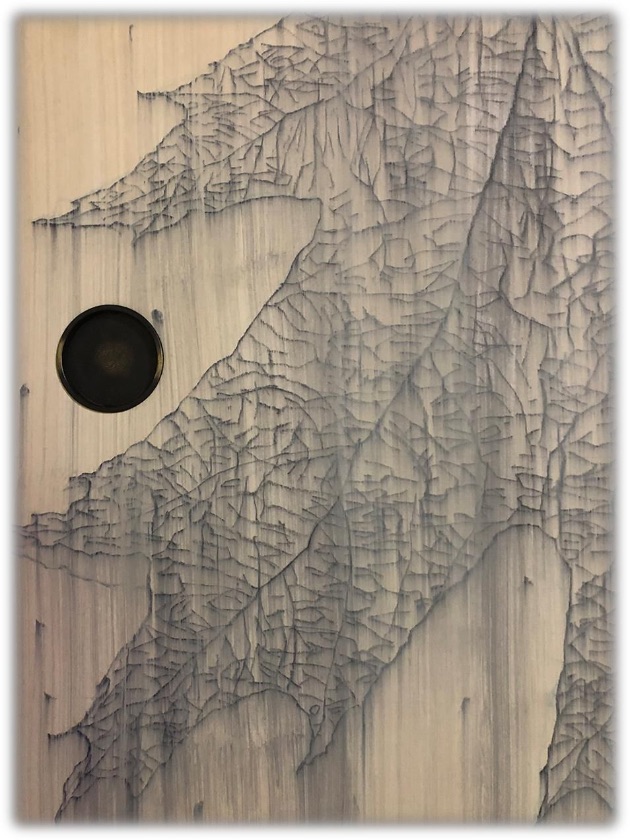
Fusuma image exampleThe temple is selling new goshuin temple stamp books this year for the light-up event. Visitors will also be able to see 56 fusuma images drawn by contemporary Japanese artist Takaya Fuji.
Rokuo-in Temple will close early next year for approximately 2 years and 9 months for repairs. The temple is also currently limiting the number of people allowed at once, making this year the best time to see the autumn leaves.
Information
Rokuo-in Temple Evening Light-Up
Running: November 14, 2020 – December 6, 2020
Time: 17:30-19:30 (last Entries 19:00)Price: ¥2,000 (Comes with matcha and Japanese confections)
Capacity: [Weekdays] 100 People / [Weekends] 150 People
Access: 4 minutes on foot from Rokuoin Station
Apply Here: 嵐電webサイト専用フォーム -
Kyoto’s New Hotel Mitsui Garden Hotel Kyoto Kawaramachi Jokyoji Fuses With a Temple
23.June.2020 | SPOT
Mitsui Garden Hotel Kyoto Kawaramachi Jokyoji, a new hotel by major real estate developer Mitsui Fudosan and Mitsui Fudosan Hotel Management, opened bookings for the new hotel last Friday. The hotel is set to officially open on September 28, 2020.
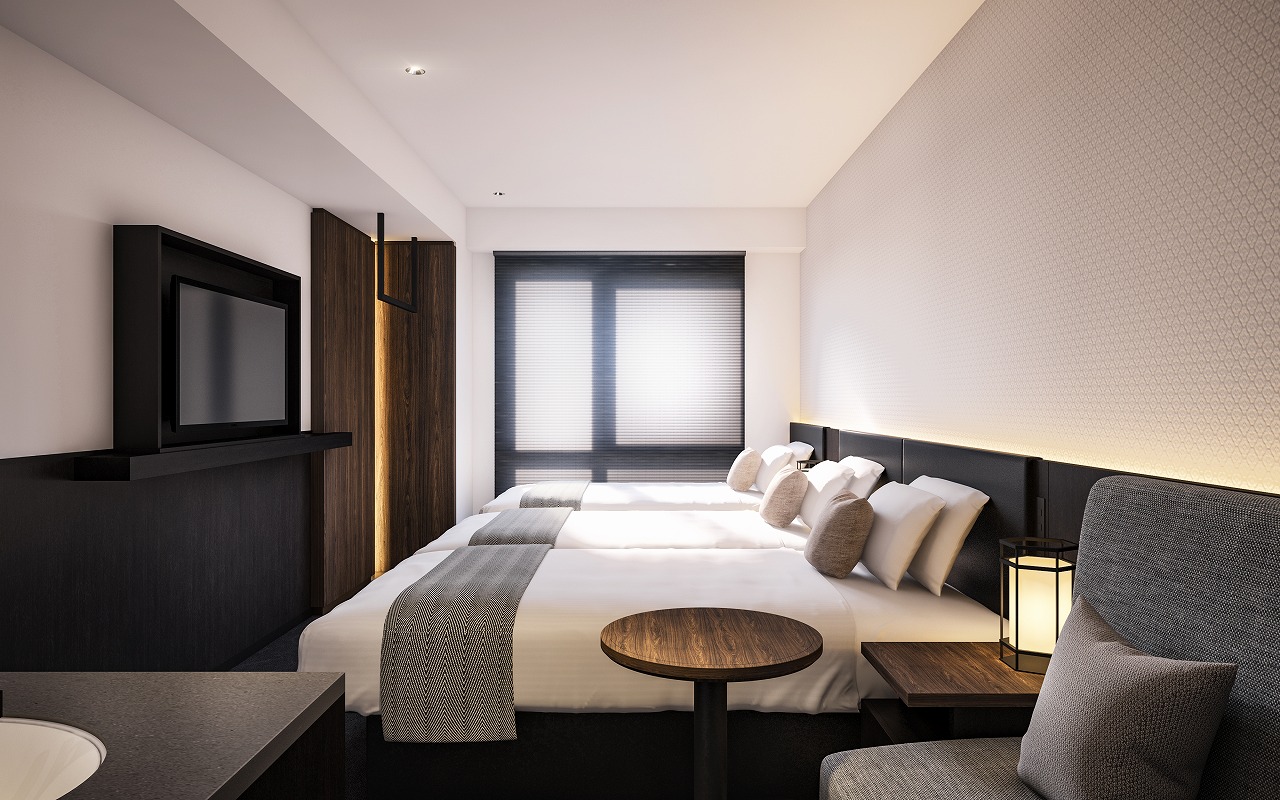
The hotel was developed to integrate into Jokyoji, a temple in Kyoto with a history spanning over 500 years. Even in Japan, where it is common for temples to undergo reconstruction, this is a rare project. The hotel aims to be a model case for breathing new life into temples.
The hotel is just a 1-minute walk from Kyoto-Kawaramachi Station and within walking distance from the bustling retail area of Shijō Kawaramachi, the Hanamachi district Ponto-chō, and Kyoto’s geisha district Gion. Guests are wrapped in the serene atmosphere of Jokyoji Temple where they can enjoy its historically maintained art, get involved in morning activities, and more.
Entrance Lobby
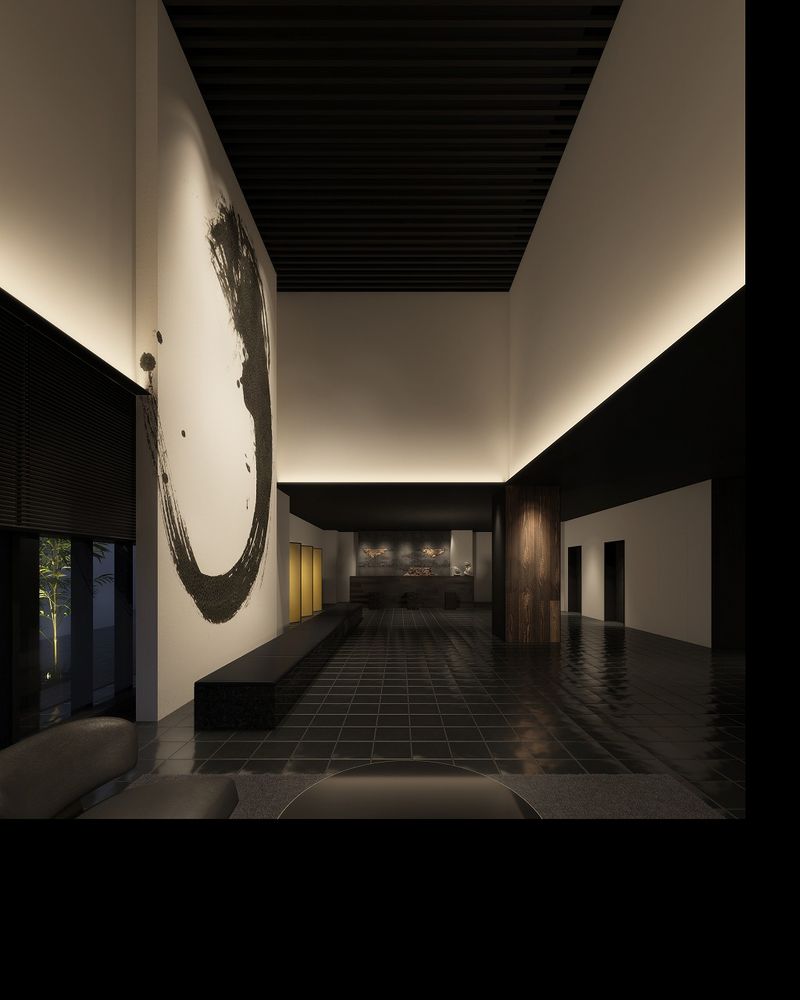
Mitsui Garden Hotel Kyoto Kawaramachi Jokyoji’s design concept is “Hotel Temple.” Nikken Space Design crafted the hotel’s interior design, which makes use of Jokyoji Temple’s preserved wood, gold leaf-covered folding screens and other features, while adding a modern white and black colour scheme throughout, giving a sense of comfort and high quality. From the lobby, guests can glimpse the main area of the temple and feel one with it.
Spacious rooms and baths
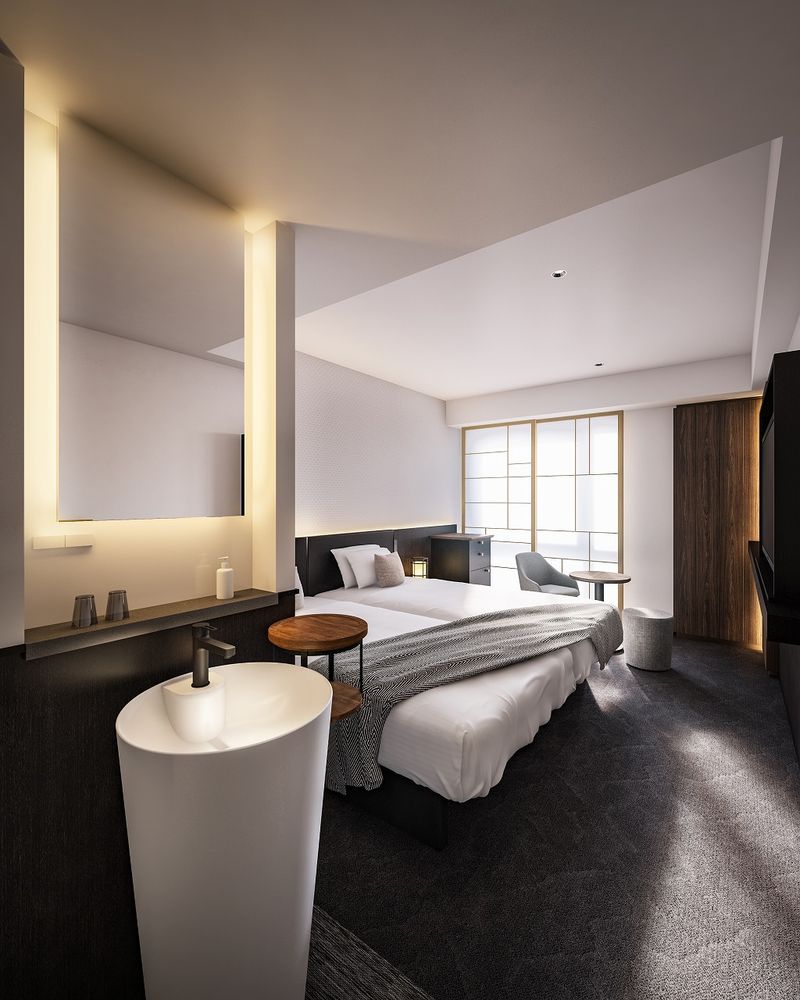
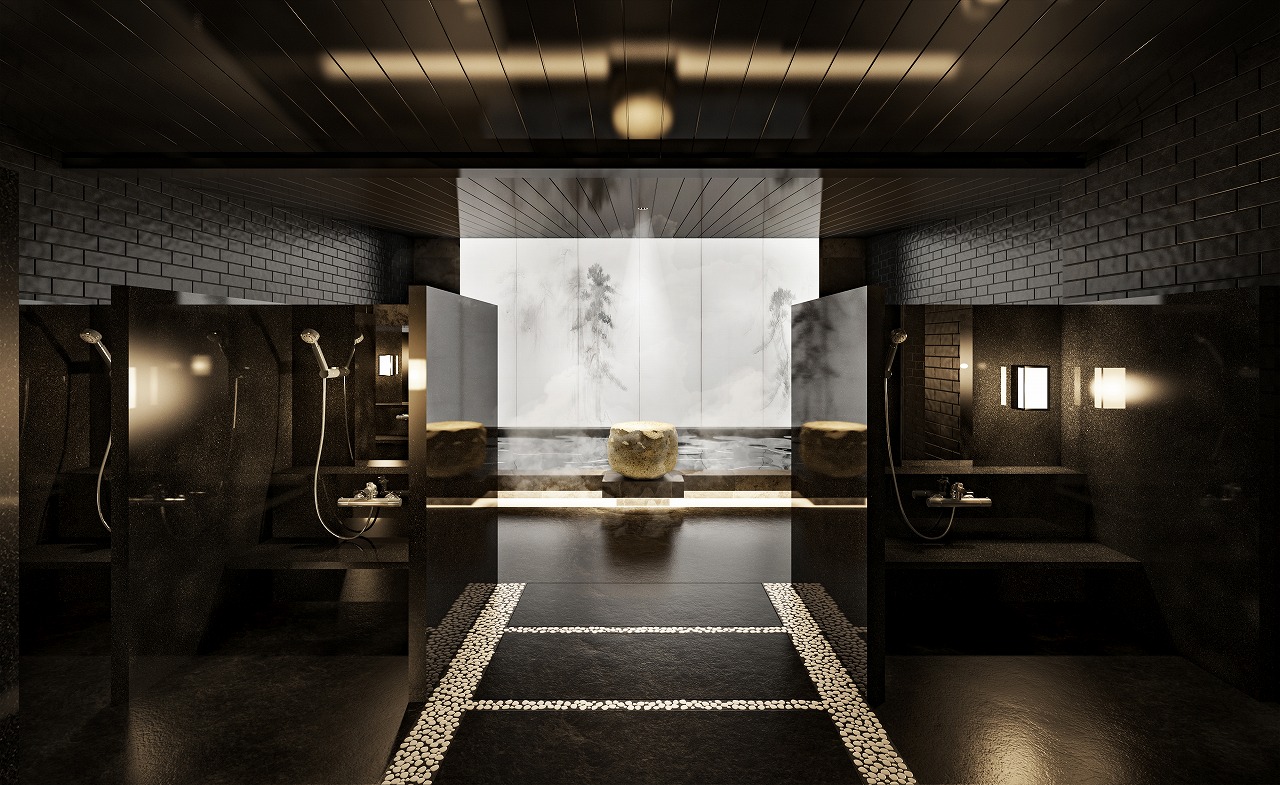
Guest rooms, even the standard room types, are a spacious 24m². All rooms can accommodate 2+ people, and there are even triple rooms which can house 3 people. Every room also comes with separate toilets and showers. Up on the second floor are the baths where guests can wind down after a day of travelling and sightseeing.
Restaurant
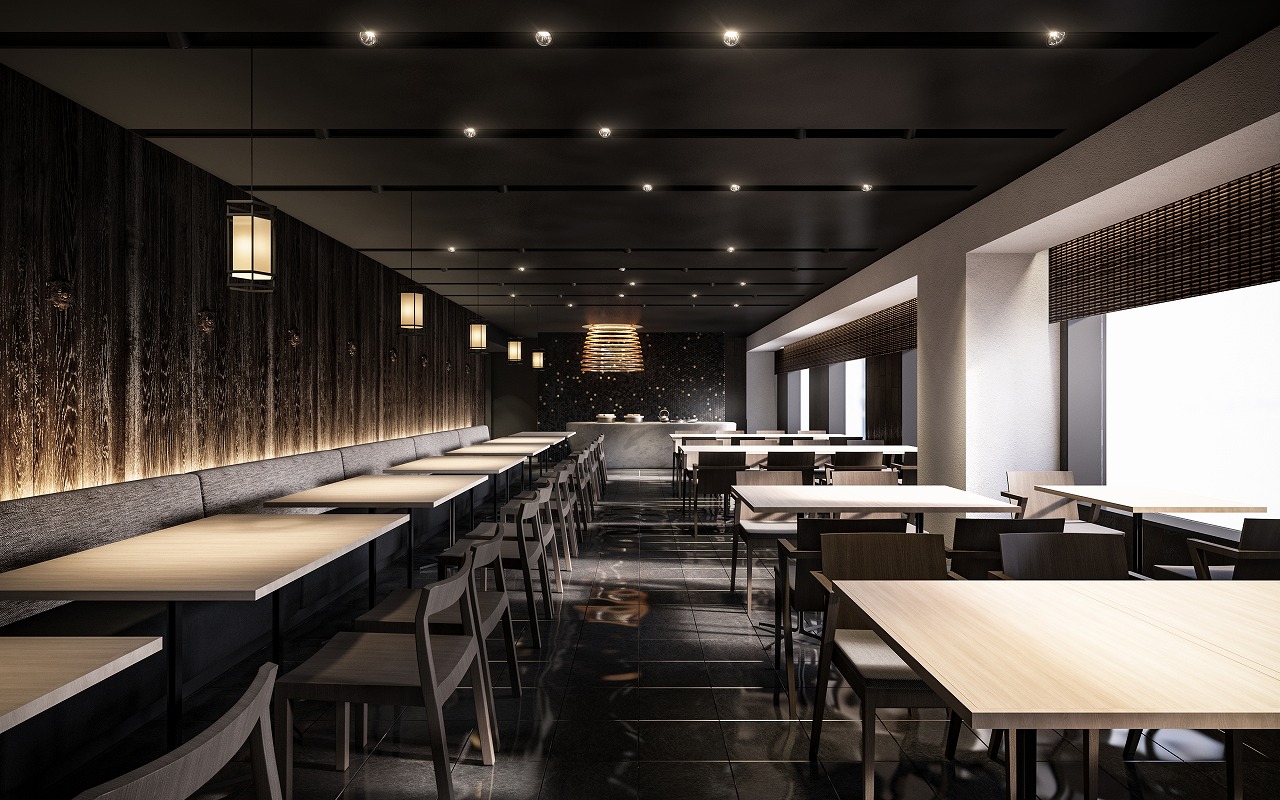
The 2nd floor restaurant, Sanga Ono Kyoto Jokyoji, was developed by ONO GROUP which has built many restaurants in Fukuoka Prefecture. This is the company’s first restaurant to be built outside Fukuoka. Guests can enjoy delicious Japanese rice, Kyoto vegetables, tai-chazuke (green tea poured over sea bream), Kyoto-style grilled fish, and more. The restaurant will also serve Japanese buckwheat noodles overseen by Akamachaya Asago, a restaurant listed in the Michelin Guide.
Experience Jokyoji Temple
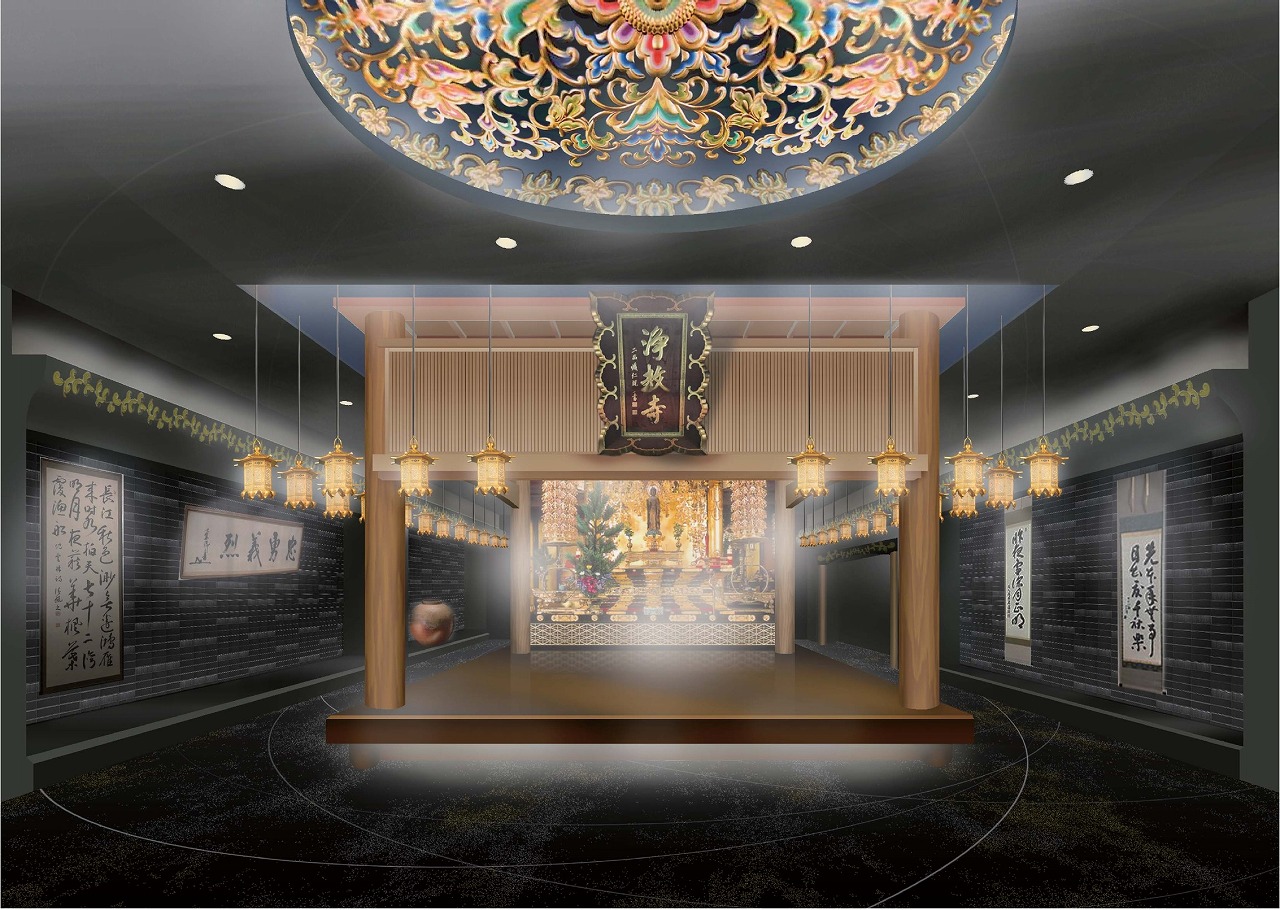
Jokyoji Temple was founded in 1171 by Taira no Shigemori. In 1591, the temple was moved to Teramachi-dori where it has stayed to this day. When the hotel opens its doors, it will offer various activities to guests. Those who take part in the morning activity will receive a goshuin stamp from the chief priest.
Experience a hotel and a temple like never before as both are fused together at Mitsui Garden Hotel Kyoto Kawaramachi Jokyoji.
Information
Mitsui Garden Hotel Kyoto Kawaramachi Jokyoji
Address: 620 Teianmaeno-cho, Shijo-sagaru, Teramachi-dori, Shimogyo-ku, Kyoto
TEL: 075-354-1131
Access: 1-minute on foot from Kyoto-Kawaramachi StationOfficial Website: https://www.gardenhotels.co.jp/kyoto-kawaramachi-jokyoji/eng/
-
Kyoto Sightseeing | Yokokuji Temple’s Annual Hydrangea Week Event Announced
13.June.2020 | SPOT
This year’s Hydrangea Week at Yokokuji Temple is set to take place from June 13 to July 5 where 5,000 breathtaking hydrangea will take over the temple grounds.
Yanagidani Kannon, also known as Yokokuji Temple, is located in Kyoto Prefecture’s city of Nagaokakyo and has been used as a place of prayer for many people with eye disease since the Heian Period. It is believed that praying at the temple will cure eye disease.
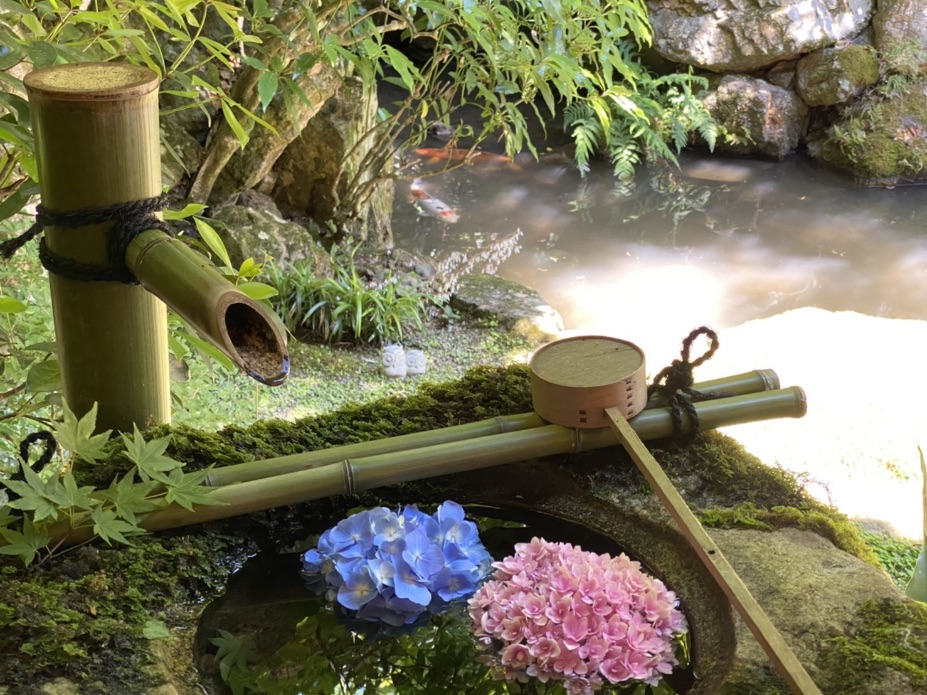
Special Opening of the Joshoin: Spectacularly Lush Flowers
Normally, the Joshoin only opens on the 17th of every month, but for this autumn week event, it will be open every day. It’s an area normally limited to officials and those in the imperial family. The beauty of its autumn colours have come to be enjoyed by VIPs, dating back to the pre-war period when it was designated as a place of scenic beauty. The Nanboku-cho Period painting Amida Sanzon Raigo Zu of Amida standing on a lotus pedestal will be displayed during the opening.
Entry Price: ¥1,000
Entry Times: 9:30-14:30
Limited Edition Goshuin: “Oku-no-in,” “Wagan-aigo,” “Airyoku”
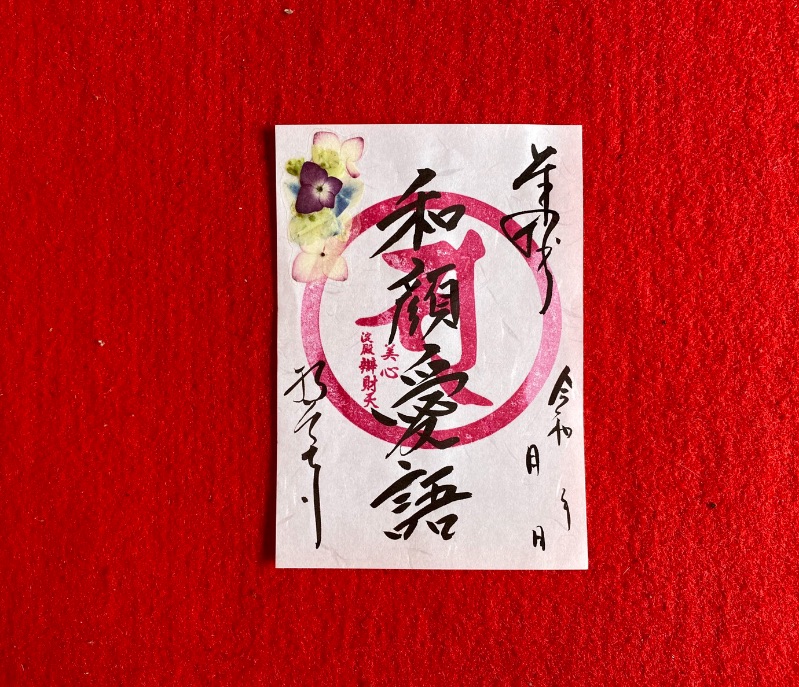
We’ve covered goshuin many times on MOSHI MOSHI NIPPON. They are stamps or seals you can receive at most temples and shrines in Japan. Collected in a goshuincho, or stamp book, you pay a fee and the staff there will write gorgeous Japanese calligraphy in your book of the temple or shrine name and the date you visited along with a stamp. Every temple and shrine has their own unique stamps.
For Hydrangea Week, you can get the following words written in your book: Oku-no-in (Inner Shrine) Wagan-aigo, (Gentle Face, Loving Words), and Airyoku (Power of Love).
Goshuin: “Omoi”
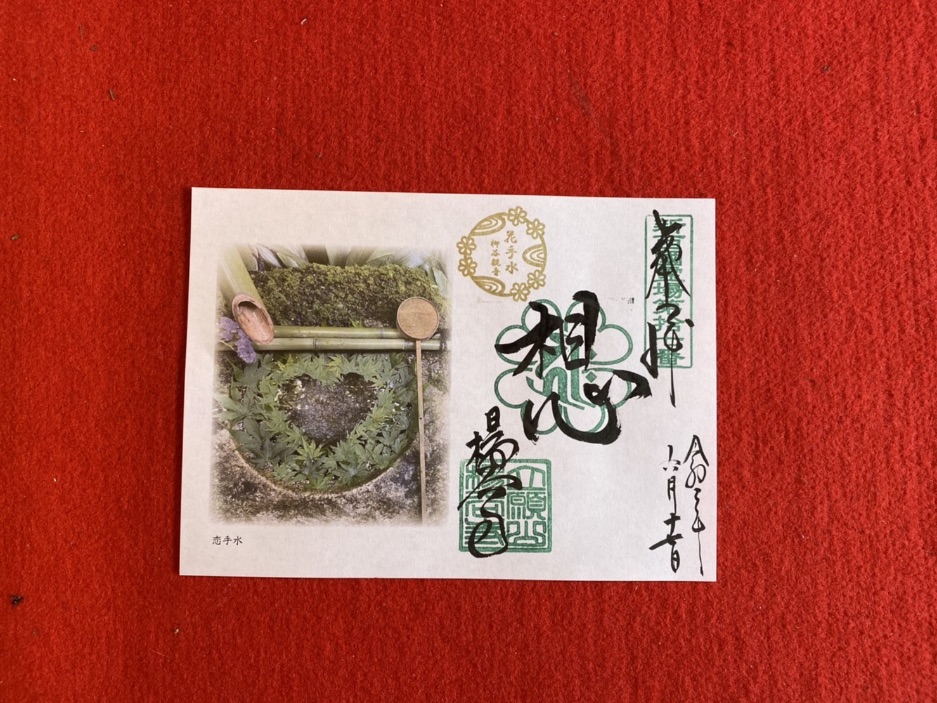
This special goshuin prays for the fulfilment of people’s Omoi, which can mean thoughts, desires, wishes, affections, and so on. It also features a picture of the temple water basin.
Price: ¥600
Seasonal Pressed Flower Goshuin Kit
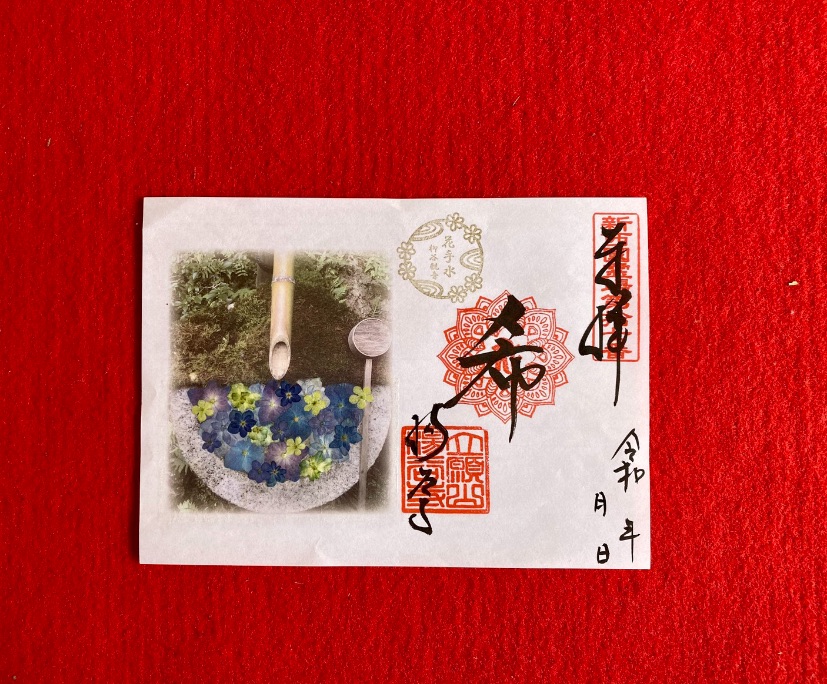
This special goshuin kit has you pressing your own flowers to create your own personal and unique design. The theme of this kit changes each season. For June, the theme is hydrangeas.
Price: ¥1,000
Hydrangea Goshuincho
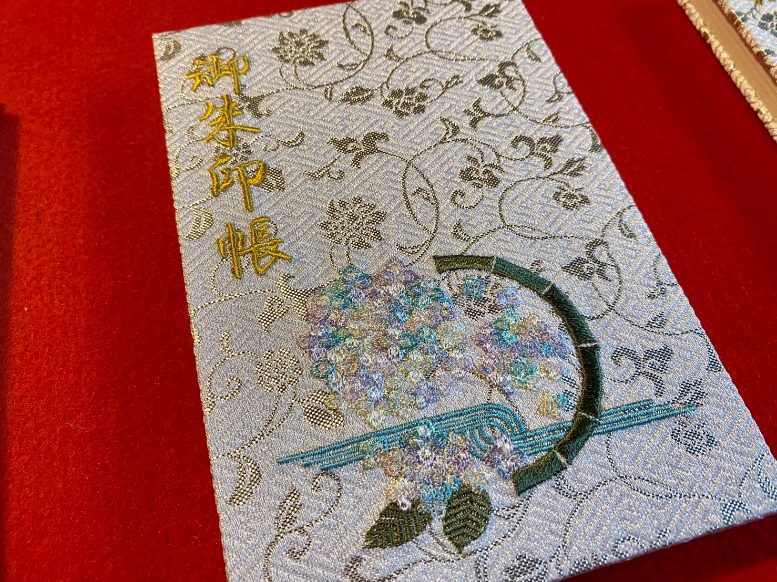
The temple is also selling seven different goshuincho stamp books. Orders are being carried out on the official website.
Price: ¥3,500 (+¥500 handling fees)
Yanagidani Kannon Treasure Exhibition
The “Yanagidani Kannon Treasure Exhibition” is a monthly showcasing of the temple’s treasured articles which are normally unavailable to the public. For June, they will be showing the art piece Daffodils by Japanese painter Keika Kanashima who was active during the Taisho and Showa periods. Her work is also on display at the Imperial Household Agency. The painting incorporates the Shijō school of Japanese painting as well as the intai style.
Items Bestowed to the Imperial Household & Buddhist Art
The temple will display items bestowed to the Imperial Household from its collection, including Emperor Nakamikado’s mirror which has a deep green hue, a flower vase owned by Japan’s last empress regnant Empress Go-Sakuramachi, and more.
Information
Hydrangea Week
Location: Yanagidani Kannon, Yokokuji Temple (Dōnotani-2 Jōdodani, Nagaokakyo, Kyoto)
Running: June 13, 2020 – July 5, 2020Time: 9:00-16:00 (Last Entries 15:00)
Price: ¥300 (Combination ticket for entry, access to the Joshoin and Jihouku costs ¥1,000)Official Website: http://yanagidani.jp/

